Anime characters often leave a strong first impression through their words and actions, making it clear who they are and what they value.
This helps others understand them easily, especially when they are friendly and open about their emotions. These characters thrive on connection and enjoy being accepted by those around them.
However, not all anime characters are so easily understood. Some struggle to show their true selves, which can lead to being misjudged by others.
This misunderstanding often comes from their inability to communicate openly or from others forming opinions based on false rumors or assumptions.
In some cases, a character’s complex personality makes it difficult for others to grasp who they really are. They may have different sides to their personality, with one side dominating how others perceive them.
This imbalance can make it hard for people to fully appreciate the depth of their character.
This lack of understanding can be painful for these characters, as they might feel isolated or unseen. It becomes a struggle for them to balance their inner feelings with the way others view them.
This conflict often forms an important part of their personal growth and development in a story. Fortunately, many of these misunderstood characters find comfort in the form of one or two special people who truly understand them.
These close friends or allies see beyond the surface and help the characters reveal their authentic selves, offering them a sense of belonging and acceptance.
Through these relationships, the characters often learn to communicate better and express themselves more openly.
These bonds not only help them grow but also show that being truly understood by even a few people can make a significant difference in their lives.
1) The Complex Humanity of Mikasa Ackerman in Attack on Titan
Mikasa Ackerman from Attack on Titan is one of the most skilled and powerful soldiers in the series. Known for her incredible strength and ability to fight Titans, she initially comes across as a stoic and serious character.
Mikasa’s reputation as a fierce warrior often leads others to view her as cold and distant, especially because of her intense focus on protecting her friends and the people she cares about.
However, beneath her tough exterior lies a deeply caring and compassionate person. Mikasa’s cold demeanor is mainly a result of her traumatic past and the loss she experienced.
After the death of her parents, she was taken in by Eren Yeager’s family, and her bond with him grew incredibly strong.
This connection made her fiercely protective of him, to the point where she often appears overbearing to others.
Mikasa’s devotion to Eren sometimes makes her seem overly obsessive, and many of her fellow soldiers misunderstand her intentions.
They see her as too emotionally attached to Eren, which causes tension and confusion at times.
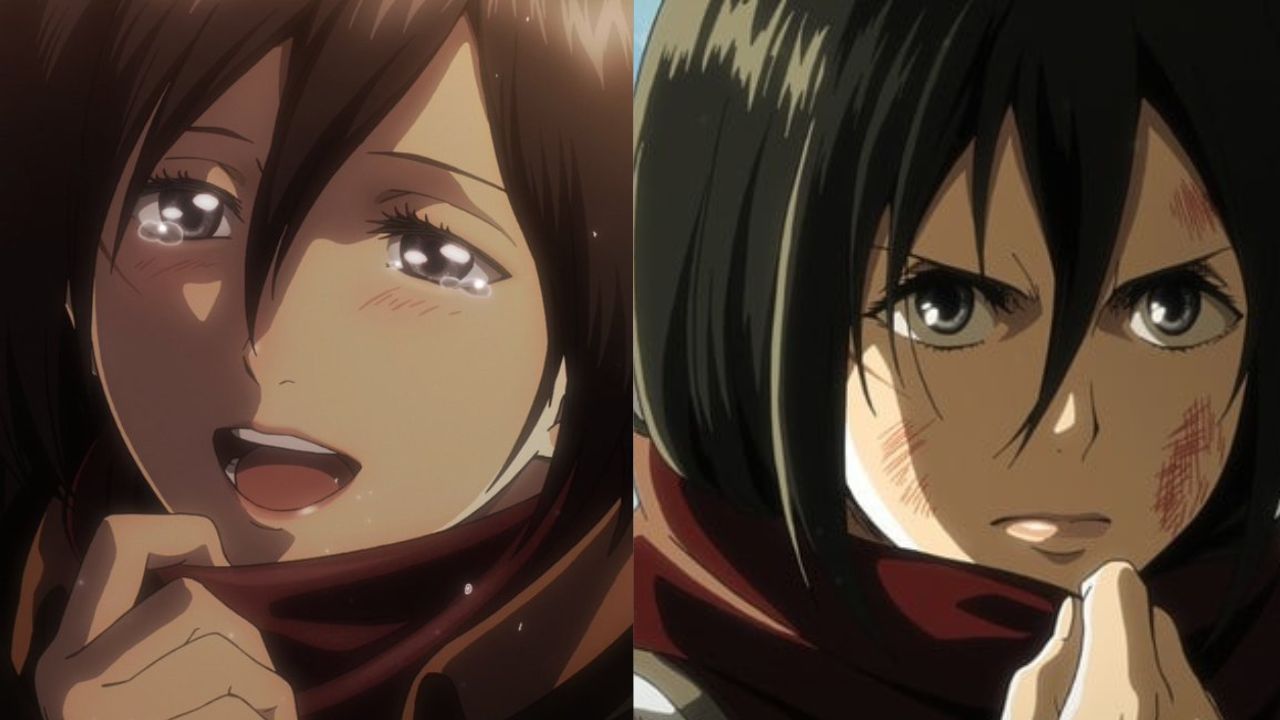
Despite her calm and collected nature in battle, her love for Eren is a driving force in her actions, and it’s this love that makes her vulnerable and human.
Though she often keeps her feelings hidden, Mikasa also yearns for a sense of belonging and a place where she feels truly at peace.
She doesn’t express her inner struggles openly, and her desire to protect those she cares about often takes precedence over her own well-being.
This selflessness is both her greatest strength and weakness, as it sometimes leaves her unable to fully address her own emotional needs.
As the series progresses, Mikasa’s character grows, and her relationships with others deepen. She starts to open up to her friends and recognizes that her identity is not just tied to her role as a protector of Eren.
Her journey is one of self-discovery, as she learns to balance her protective nature with her own desires and emotions.
In the end, Mikasa’s true character shines through. While she may appear cold and distant at first, those who take the time to understand her realize that she is a loyal, caring, and complex individual.
Mikasa is not just a skilled fighter; she is also a person who deeply values the bonds she shares with others, even if she struggles to express it.
2) Power Transformed Light Yagami in Death Note
The anime Death Note follows Light Yagami, a brilliant and seemingly perfect high school student who stumbles upon a mysterious notebook that grants him the power to kill anyone whose name he writes in it.
At first glance, Light seems like the ideal hero intelligent, hardworking, and deeply frustrated by the world’s injustices.
However, beneath his calm and composed exterior lies a darker side. Light is highly ambitious and secretly craves control over the world, believing he can reshape it into a better place by eliminating criminals.
When he discovers the Death Note, his vision of justice becomes distorted, and he begins to see himself as a god-like figure who impose order.
At first, Light uses the Death Note with calculated precision, targeting only those he deems unworthy of life. To the public, his alter ego Kira becomes a symbol of fear and justice.
However, his methods quickly grow ruthless, and his morality becomes increasingly questionable as he eliminates anyone who threatens his new world order, even innocent people.
Despite his cunning and charm, Light remains a deeply misunderstood character. To his family and friends, he seems like a kind and dependable young man, but they never see the internal conflict or the immense pressure he feels to maintain his double life.
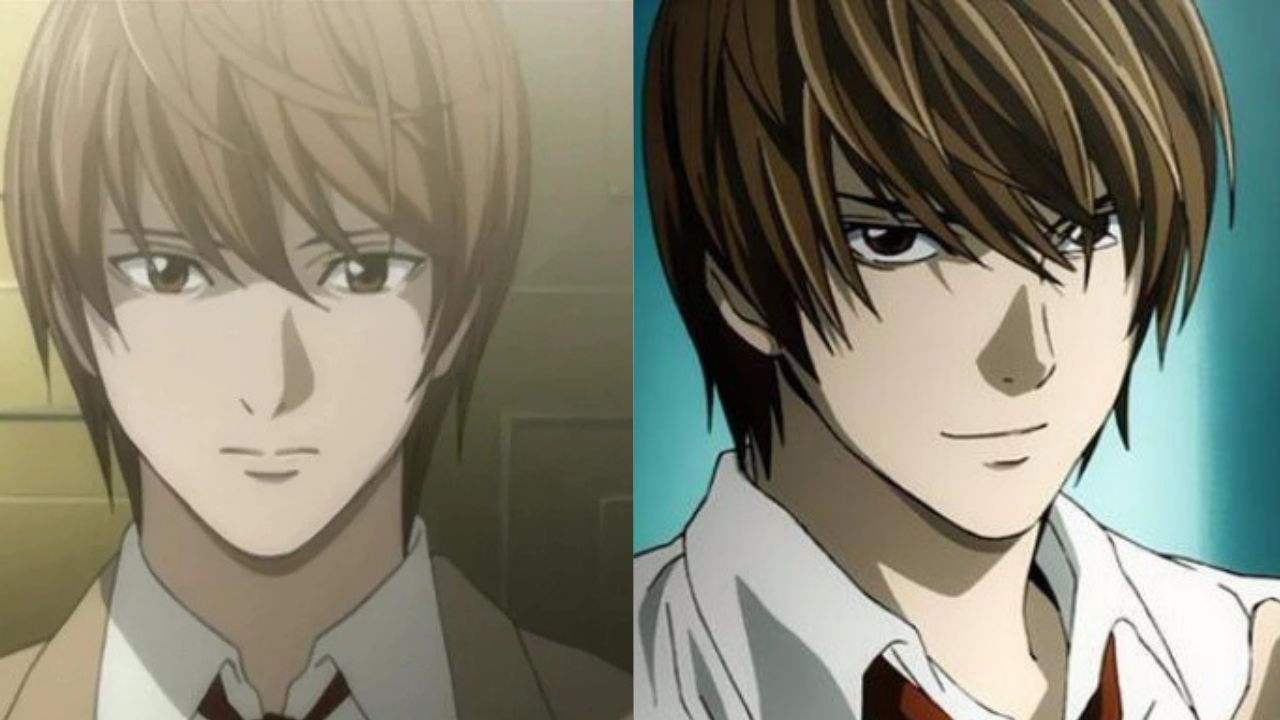
This duality is part of what makes him so compelling and tragic as a character.
Light’s journey is not just about his actions but also about the toll they take on his soul. As the brilliant detective L closes in on him, Light’s paranoia grows, and he becomes more manipulative and cold.
The power of the Death Note corrupts him, turning him into the very thing he initially sought to destroy.
Ultimately, Light Yagami’s story is one of ambition, corruption, and a misguided sense of justice.
His transformation from an idealistic student to a merciless killer highlights the dangers of unchecked power and the complexity of human morality.
Despite his descent into darkness, Light remains one of anime’s most fascinating and layered characters.
3) Saitama’s Power Shapes His Quest for Connection in One Punch Man
In One Punch Man, Saitama is introduced as an unremarkable-looking hero with a bald head and a plain demeanor.
Despite being the strongest man in the world, capable of defeating any opponent with a single punch, Saitama’s life is far from glamorous.
Rather than reveling in his strength, he is often bored and frustrated by the lack of real challenges. His incredible power, which leaves him feeling empty and unfulfilled, is both a blessing and a curse.
He’s constantly searching for something that will bring excitement back into his life, but his overpowered abilities make it difficult for him to find a worthy opponent.
At first glance, Saitama’s lack of flashy heroism and his nonchalant attitude toward the dangers around him make him seem like a lazy and disinterested character.
To the people around him, especially the other heroes, he comes off as aloof and underwhelming. He doesn’t look the part of a traditional hero, and he doesn’t care much for recognition or fame.
His heroics often go unnoticed, and he’s treated with little respect by others, who view him as just another newcomer in the Hero Association.
Despite the way he appears to others, Saitama is actually deeply caring, although his softer side is not always obvious.
He may seem indifferent to his surroundings, but his actions often show that he has a strong sense of justice and is willing to help people, even if it’s not for the recognition.
His willingness to protect others, regardless of the odds, is part of what makes him a true hero, even though he doesn’t seek accolades for his efforts.
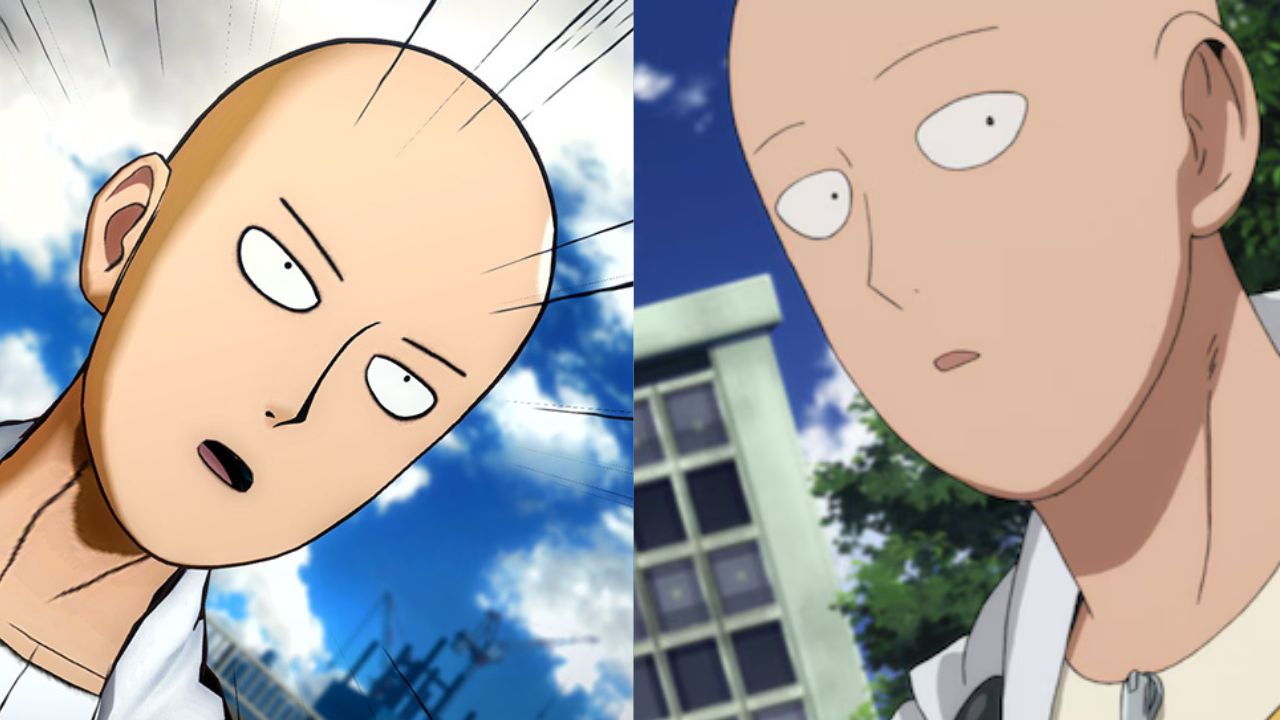
Though Saitama’s outward appearance is far from intimidating, and his personality doesn’t match the usual heroic archetype, he has a few close allies who come to understand him better.
Genos, a young cyborg hero, quickly becomes Saitama’s disciple, fascinated by his mentor’s power and earnestness.
Over time, Saitama’s true nature is revealed through his interactions with those around him. His loyalty to his friends and his desire to be helpful shine through, and those who initially doubted him learn to see his strength in more than just physical terms.
Saitama’s journey is not just about defeating villains, but about trying to find meaning in his life.
His quest for a worthy opponent is also a search for purpose, as he deals with the frustration of having everything he could ever want except for excitement.
As his reputation slowly builds, his strength, while feared by enemies, becomes a source of internal conflict for him.
Saitama may have unmatched power, but that power brings him little joy, and his real challenge lies in finding something that can make him feel alive again.
In the end, Saitama’s story is one of quiet heroism. He doesn’t seek to be a symbol or a leader, but rather someone who does good because it’s the right thing to do.
His journey is about self-discovery, finding meaning in a world where no one can challenge him, and learning to connect with others despite his incredible abilities.
Saitama may be misunderstood by many, but those who take the time to know him see the heart of a true hero someone who fights not for recognition, but because he wants to protect those who can’t protect themselves.
4) Sasuke Uchiha a Journey from Vengeance to Redemption in Naruto
Sasuke Uchiha from Naruto is a character surrounded by both mystery and complexity, making him one of the most compelling figures in the series.
At the start of his journey, Sasuke is driven by a deep desire for revenge against his older brother, Itachi, who murdered their entire clan.
This quest for vengeance becomes the defining purpose of Sasuke’s life, shaping his actions and isolating him from others.
His cold demeanor and aloof nature give the impression that he is a lone wolf, uninterested in forming bonds with his fellow villagers or even his teammates.
Sasuke’s behavior is often misunderstood by others, especially his friends Naruto and Sakura. While his actions might come off as indifferent or even hostile, they are driven by an internal battle between his desire for power and his need to deal with his painful past.
His sense of guilt, loneliness, and trauma from witnessing the destruction of his family make it difficult for him to connect with others on a deeper level.
Sasuke believes that by becoming stronger, he can avenge his clan and escape the pain that haunts him, leading him to push people away.
Over time, Sasuke’s struggle with his emotions intensifies as he becomes more obsessed with his goal of revenge.
His journey is marked by difficult choices, including leaving his village to train under Orochimaru, a decision that deeply affects his friendships and the people who care about him.
Sasuke’s departure is seen as a betrayal by Naruto, who, despite his rival’s cold behavior, has always considered Sasuke a close friend.
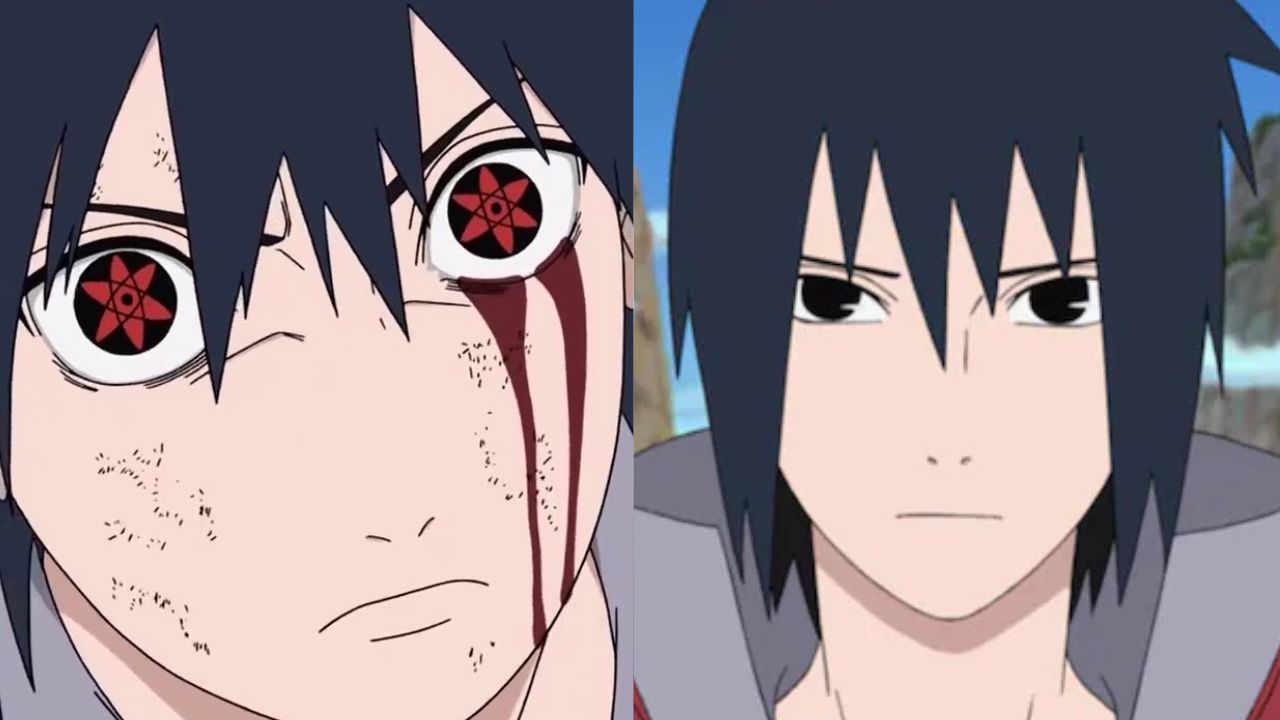
This move highlights Sasuke’s internal conflict and his belief that he walk his path alone to achieve his goal.
As the series progresses, Sasuke’s descent into darkness becomes more apparent. His thirst for power leads him to make increasingly dangerous decisions, distancing him from his past and the bonds he once shared with Naruto and Sakura.
However, beneath this hardened exterior, Sasuke is still struggling with his identity and the anger that fuels his every action.
His coldness and desire to be alone are not a reflection of his true nature but rather a coping mechanism for the overwhelming loss he has experienced.
Despite his inner turmoil, Sasuke is not completely beyond redemption. His encounters with Naruto, in particular, force him to confront the person he has become and the path he is heading down.
Naruto, who has always seen Sasuke as more than just a rival, becomes determined to bring Sasuke back to the village and remind him of the bonds they shared.
This unwavering belief in their friendship is what ultimately leads Sasuke to reevaluate his choices, though it is a slow and painful process for him.
In the end, Sasuke’s character arc is one of self-realization and growth. He comes to understand that revenge and isolation will never bring him peace, and that true strength lies in his connections with others.
Although Sasuke’s journey is filled with mistakes and struggles, his eventual decision to return to the village and help protect those he cares about shows that he has come full circle.
Sasuke’s story is a reminder that even the most misunderstood and distant individuals have the capacity for change and growth, and that friendship and understanding can ultimately heal even the deepest wounds.
5) Yuno Gasai’s Search for Belonging in Future Diary
In Future Diary, Yuno Gasai stands out as one of the most intense and misunderstood characters. At first glance, she appears as a crazy and obsessive girl who will go to extreme lengths to protect her love for the protagonist, Yukiteru Amano.
Her unwavering devotion to him, while frightening to those around her, is driven by deep feelings of loneliness and trauma.
Yuno’s past and her desperate need for affection shape much of her behavior, making her seem like an unpredictable and dangerous individual.
Despite her intense personality, Yuno’s backstory reveals a more vulnerable side. She was raised in an abusive environment, which caused her to develop unhealthy attachments to people and things.
This trauma is what drives her obsessive need to protect Yukiteru, but it also makes it difficult for her to trust others or form stable relationships.
Her love for him isn’t just a simple infatuation; it is a desperate need for someone to care for her in return.
As the story progresses, Yuno’s relationship with Yukiteru becomes more complicated. Although she genuinely cares for him, her controlling behavior often causes tension between them.
She has a tendency to see the world through a lens of us versus them, where she will do anything to keep Yukiteru safe, even if it means hurting others.
This leads many people, including Yukiteru, to view her as manipulative and dangerous, even though she only acts out of a need for love and security.
Over time, Yuno’s layers begin to peel away, and the audience gets to see the more complex sides of her character.
Her love for Yukiteru, while obsessive, stems from a place of vulnerability, and her actions are often shaped by fear rather than malice.
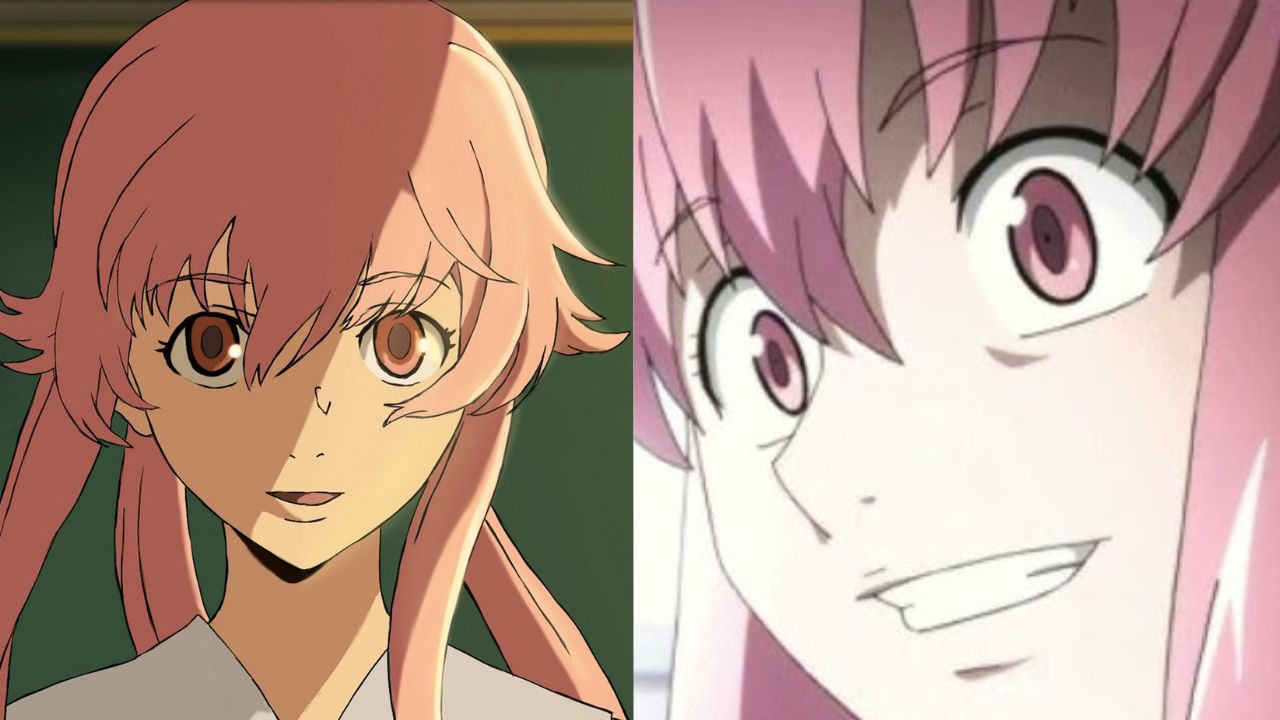
She is not inherently evil, but rather a girl who has been shaped by a cruel world and is trying to find a way to survive and belong.
Her desire for connection becomes more apparent as the story continues, revealing that she is not the heartless villain that she might initially appear to be.
However, Yuno’s inability to properly express her feelings and her overwhelming fear of losing Yukiteru lead to her making questionable decisions.
Her emotional instability and need for control often put those around her in danger, especially as the deadly battle for the future diary unfolds.
Yet, even in these moments of crisis, there is an underlying sadness to Yuno. She craves a sense of belonging and the safety of a genuine connection, but she doesn’t always know how to handle her feelings in a healthy way.
By the end of the series, Yuno’s journey is a tragic one. While she does experience moments of clarity and growth, her actions continue to be driven by a fear of abandonment and her deep-seated need to be loved.
Her character arc challenges the audience to reconsider what makes someone good or bad, and to empathize with someone who, despite their extreme actions, is simply a person longing to be understood.
Yuno Gasai’s story is a powerful exploration of love, loneliness, and the consequences of trauma.
6) How the World Government’s Lies Shaped Nico Robin’s Destiny in One Piece
In One Piece, the World Government holds immense power and is willing to go to great lengths to protect its secrets.
One of its most notorious actions involved targeting Nico Robin, a young researcher from the island of Ohara.
Robin was studying the Void Century, a period of history the World Government desperately wanted to keep hidden.
When the government found out about the research, they ordered a Buster Call, a devastating attack that destroyed Ohara and killed many of its inhabitants.
After the destruction of her island, Robin was forced to flee. She became known as the devil child due to the World Government’s false propaganda, which painted her as a villain.
Her reputation was tarnished by the lies spread about her, making her a target for anyone who might cross her path.
With no one to trust, Robin was left to live a life of isolation, constantly on the run from those who believed the rumors.
Things only got worse for Robin when she joined the Baroque Works, a criminal organization led by the infamous Sir Crocodile.
Her association with the group made it even harder for others to see the real her, and the Straw Hat Pirates initially viewed her as a threat.
They believed she was just another enemy working against them, unaware of her true circumstances and motivations.
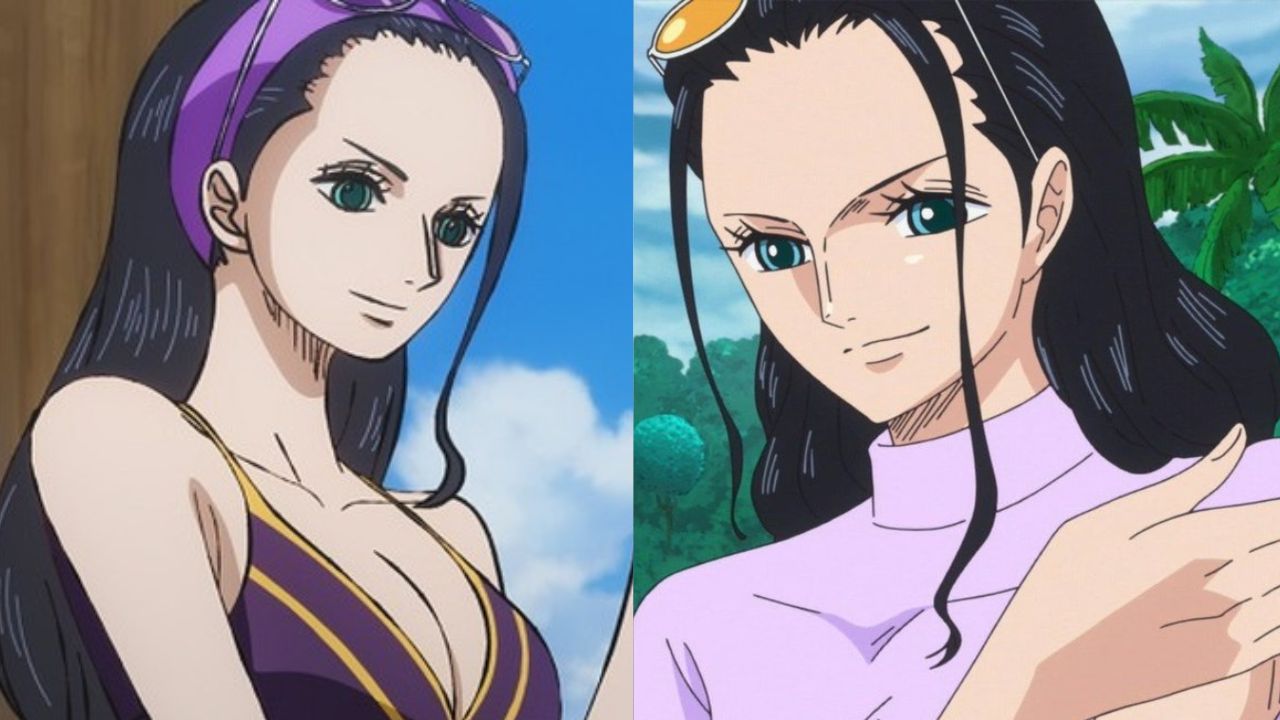
However, Robin was never the evil person the World Government had portrayed her to be. In reality, she was a kind and intelligent woman who had been forced into difficult situations.
Her desire to find answers about her past and the Void Century drove her, but she never intended to harm others.
Despite the circumstances, Robin’s actions were driven by a sense of survival and a longing for acceptance.
After Crocodile’s defeat and the collapse of Baroque Works, Robin’s true nature began to shine through. Luffy and the Straw Hats started to see her as more than just an enemy.
They realized that she had been a tragic figure all along, a lonely person who had been misunderstood and forced into a life of solitude. With this understanding, they began to welcome her into their group.
Nico Robin’s story is one of redemption and the power of understanding. Despite the negative image the World Government created for her, she was a good-hearted individual who only wanted to find peace and answers.
As the Straw Hats got to know her better, they saw past the rumors and accepted her for who she truly was a valuable and compassionate member of their team.
7) Coyote Starrk’s Loneliness Defined His Fate in Bleach
In Bleach, many of the Espadas were well understood by their allies and enemies, such as Grimmjow Jaegerjaques and Aaronero Arruruerie, whose personalities were clear to everyone.
However, one Espada remained largely misunderstood: Coyote Starrk, the 1st Espada, known for his immense power.
Starrk was seen as lazy and indifferent, traits that overshadowed the truth about his character.
Starrk’s aloof demeanor often led others to believe that he was simply uninterested in forming connections, as he rarely engaged in the activities of his fellow Espadas.
His reputation as a lazy and detached fighter became the defining aspect of how others saw him. But behind this exterior, Starrk’s true feelings remained hidden.
What no one realized about Starrk was his deep loneliness. Despite being one of the most powerful warriors in the Espada, he yearned for true friendship and companionship.
He wasn’t just indifferent; he was isolated, longing for connections that he couldn’t form. This was a side of him that no one, not even his fellow Espadas, took the time to understand.
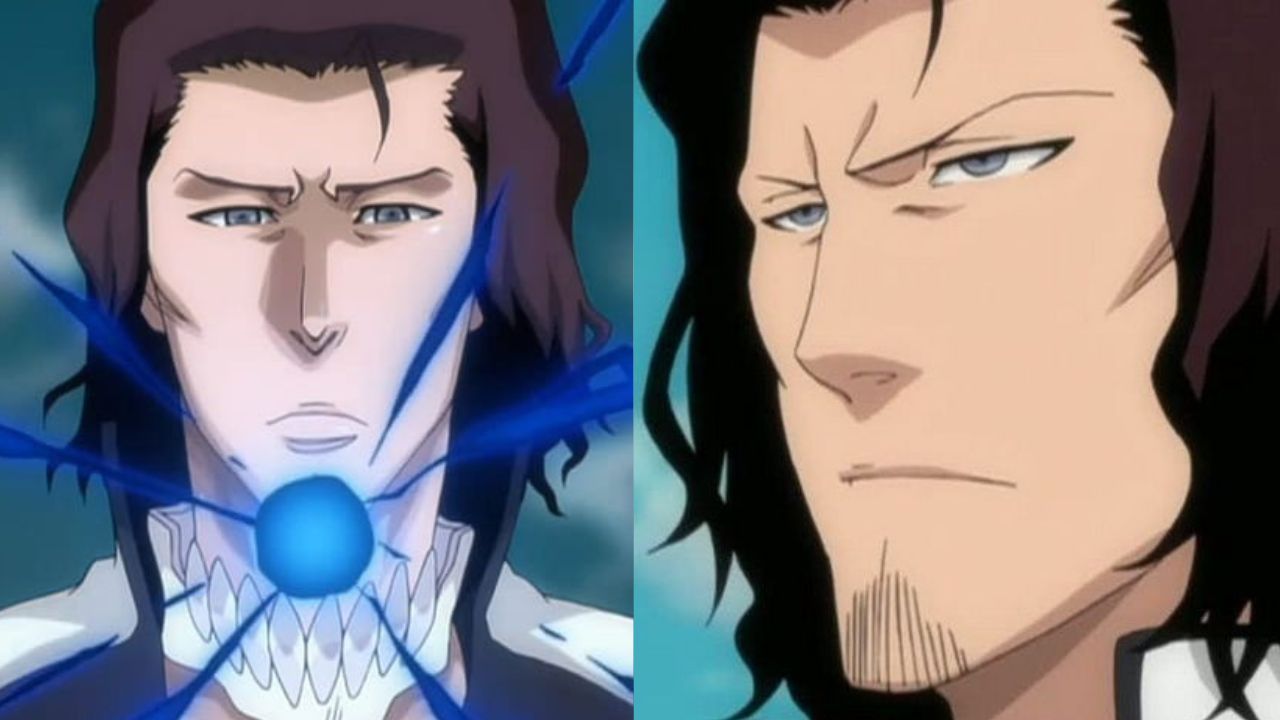
As the battles unfolded and Starrk’s time in the series drew to a close, his true feelings became clearer. In his final moments, Starrk reflected on his loneliness and his desire for meaningful relationships.
He realized that, despite his power, he had never found the friends he longed for, and he died without ever having the chance to share these emotions with anyone.
Unfortunately, Starrk’s death was tragic not just because of his loneliness, but because it was caused by the very forces he had hoped to avoid.
He died at the hands of the Soul Reapers, whom he had been forced to fight on the orders of his master, Sosuke Aizen.
Starrk’s wishes for connection and peace went unfulfilled, as he was caught in the conflict that he never wanted.
In the end, Starrk’s story is one of isolation and misunderstanding. Despite being one of the most powerful figures in the Espada, he never found the bonds he sought, and his death was as lonely as his life.
His character remains a poignant example of how even the strongest warriors can suffer from the pain of loneliness and the longing for connection.
8) The Tragic Truth Behind Shinji Ikari’s Struggles in Neon Genesis Evangelion
In Neon Genesis Evangelion, Shinji Ikari is initially presented as a reluctant and introverted teenager thrust into a world of giant robots and apocalyptic battles.
His mission is to pilot the powerful EVA unit to protect humanity from mysterious beings known as Angels, a task that he feels unprepared for and unwilling to take on.
Shinji’s journey throughout the series is marked by self-doubt, loneliness, and a deep sense of inadequacy, which is evident in his interactions with others.
Shinji’s relationship with his father, Gendo Ikari, is one of the most significant and painful aspects of his character. Gendo, a cold and distant man, pressures Shinji to pilot the EVA without offering support or affection.
This strained father-son relationship shapes much of Shinji’s internal struggles, as he constantly seeks his father’s approval but feels rejected and abandoned.
This lack of emotional connection with Gendo leaves Shinji feeling isolated and unsure of his place in the world.
Although Shinji often comes across as passive, indecisive, and emotionally distant, he is far from a typical hero. His internal conflicts are portrayed in a raw and honest way, making him a relatable character for many viewers.
Throughout the series, Shinji grapples with his feelings of worthlessness and fears of rejection, which prevent him from forming close relationships with others.
He is frequently seen as an outsider, someone who doesn’t fit in or belong, both within Evangelion and in the world at large.
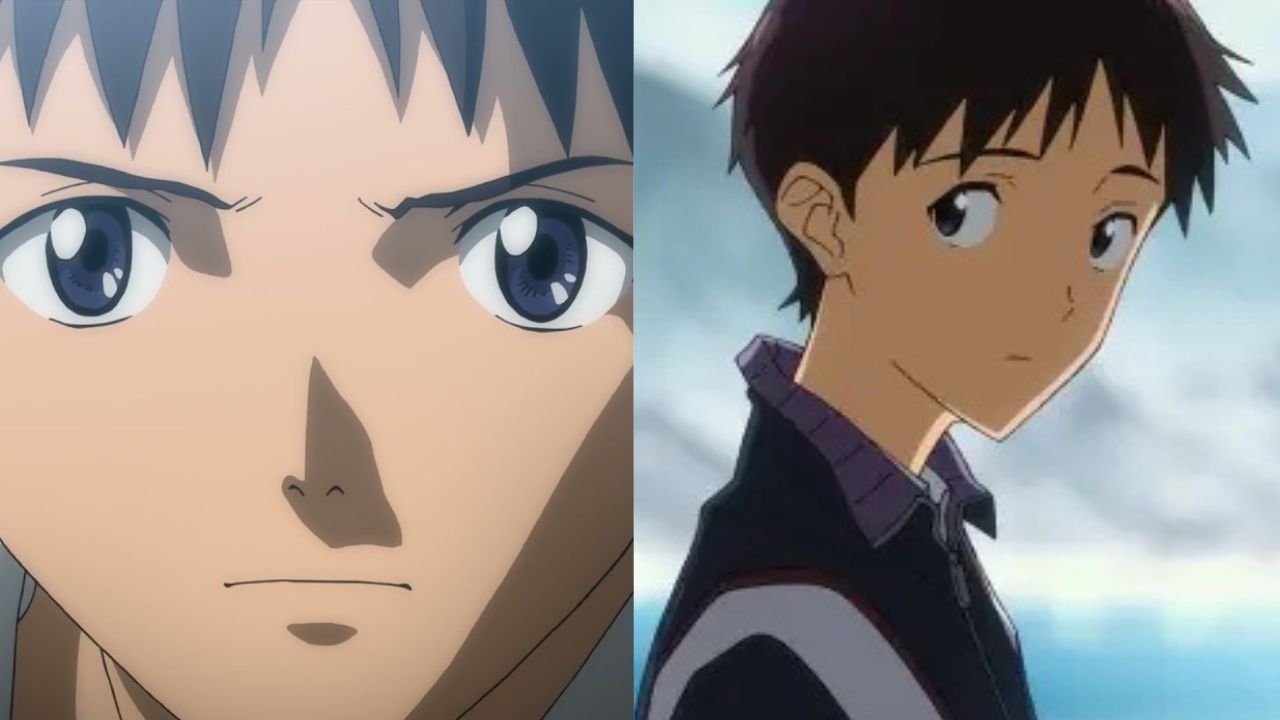
Despite his hesitations and fear, Shinji begins to develop deeper connections with the people around him.
One of the few people he can open up to is Rei Ayanami, a mysterious girl who, like Shinji, struggles with her own sense of identity.
Though their bond is not immediate, it is through his interactions with Rei and others, such as Misato Katsuragi, that Shinji starts to face his fears and begins to confront his own insecurities.
As the series progresses, Shinji’s growth becomes more apparent. His emotional turmoil continues to haunt him, but he slowly learns to accept himself and his role in the battle to save humanity.
Shinji’s reluctance to fight is not born out of cowardice, but rather from a deep internal conflict over whether his actions are truly meaningful.
His struggle to find purpose and identity is one of the central themes of Neon Genesis Evangelion, and his journey reflects the complexities of growing up and understanding one’s place in the world.
By the end of the series, Shinji’s character arc comes full circle, though not in the way viewers might expect. Instead of a clear-cut resolution, Shinji’s growth is portrayed as an ongoing process.
His experiences with pain, rejection, and self-doubt ultimately lead him to a more profound understanding of himself and the world around him.
In many ways, Shinji is both a tragic and relatable character, showing that even in the face of overwhelming challenges, the journey toward self-acceptance is a difficult but essential part of the human experience.
9) Maka Albarn Redefined Leadership in Soul Eater
In Soul Eater, Maka Albarn stood out as a determined and skilled meister, partnered with her scythe weapon, Soul Eater Evans.
At first glance, Maka seemed like an ordinary student at the Death Weapon Meister Academy, focused on becoming stronger. However, she carried a depth that set her apart from others.
Maka was known for her intelligence and dedication, but what many overlooked was her vulnerability.
Her tough exterior often hid her insecurities about her parents’ broken marriage and her struggles to prove her worth.
She used her studies and training to mask the emotional scars left by her father’s unfaithfulness, which affected how she trusted others.
Despite her personal challenges, Maka was incredibly caring and loyal to her friends. She was always willing to stand by them, even in the face of danger.
This side of her shone brightest during the group’s missions to hunt corrupted souls and witches.
She believed in teamwork and the strength of their bonds, which often inspired her companions to push through their own struggles.
Maka’s strong moral compass and determination to protect those she loved made her an admirable leader. However, she was not without flaws.
Her frustration with herself and others sometimes caused conflict, but these moments only made her growth more relatable.
She worked hard to overcome these barriers, becoming a better version of herself in the process.
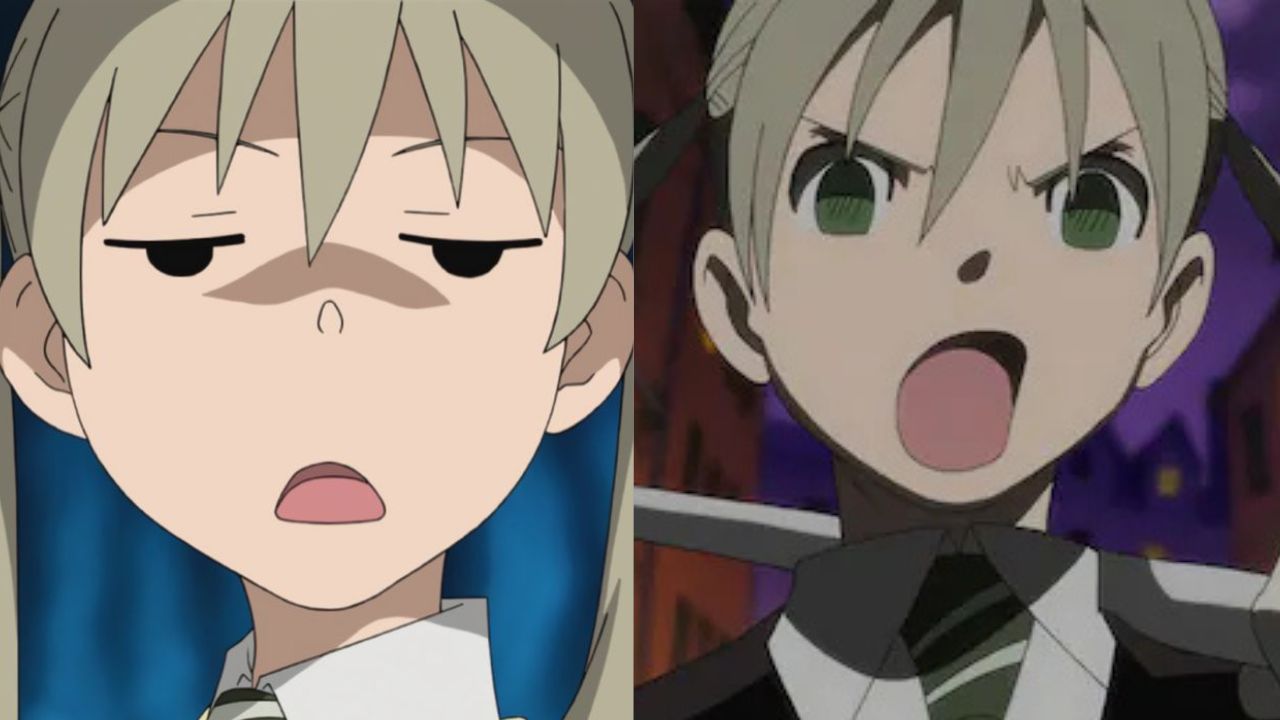
As the story progressed, Maka learned to embrace both her strengths and her vulnerabilities.
Her bond with Soul deepened, and they unlocked new powers that reflected their mutual trust and friendship.
Maka also became more forgiving and understanding, allowing her to connect with her teammates on a deeper level.
By the end of the series, Maka proved that she was more than just a dedicated student or a skilled meister.
She was a brave and compassionate person who used her inner strength to overcome challenges and bring her team closer together.
Her journey was a witness to the idea that true strength comes from both one’s abilities and the support of others.
10) The Layers of Nijimura Keiji in In JoJo’s Bizarre Adventure: Diamond
In JoJo’s Bizarre Adventure: Diamond is Unbreakable, one character who initially comes across as a bit of a mystery is Nijimura Keiji.
He is introduced as an intimidating figure with a reputation that makes people wary of him.
At first, he seems to be a typical antagonist, but as the story unfolds, his true nature becomes more complex and nuanced.
Keiji is known for his strength and his fierce sense of loyalty to those he cares about. As a member of the Stand-using family, he comes off as a tough character who’s unafraid of conflict.
His actions and his appearance might suggest that he’s someone who thrives on violence and chaos.
In the early stages, it’s easy to view him as an enemy, especially because of the challenges he presents to the protagonist and his friends.
However, there is more to Keiji than just his tough exterior. Beneath his cold demeanor lies a person who is driven by a strong sense of duty and a desire to protect his family.
His relationship with his younger brother, Okuyasu, reveals a more vulnerable side of him.
Although Keiji comes across as distant and sometimes harsh, he cares deeply for his brother, and their bond is one of the key motivations for his actions.
Despite being involved in some of the series’ darker moments, Keiji is not entirely malicious. His actions are often guided by a sense of responsibility, rather than a desire for cruelty.
His involvement in the plot is not out of a thirst for power, but rather due to a complicated situation that forces him to make difficult choices. He becomes more of a tragic character than a typical villain.
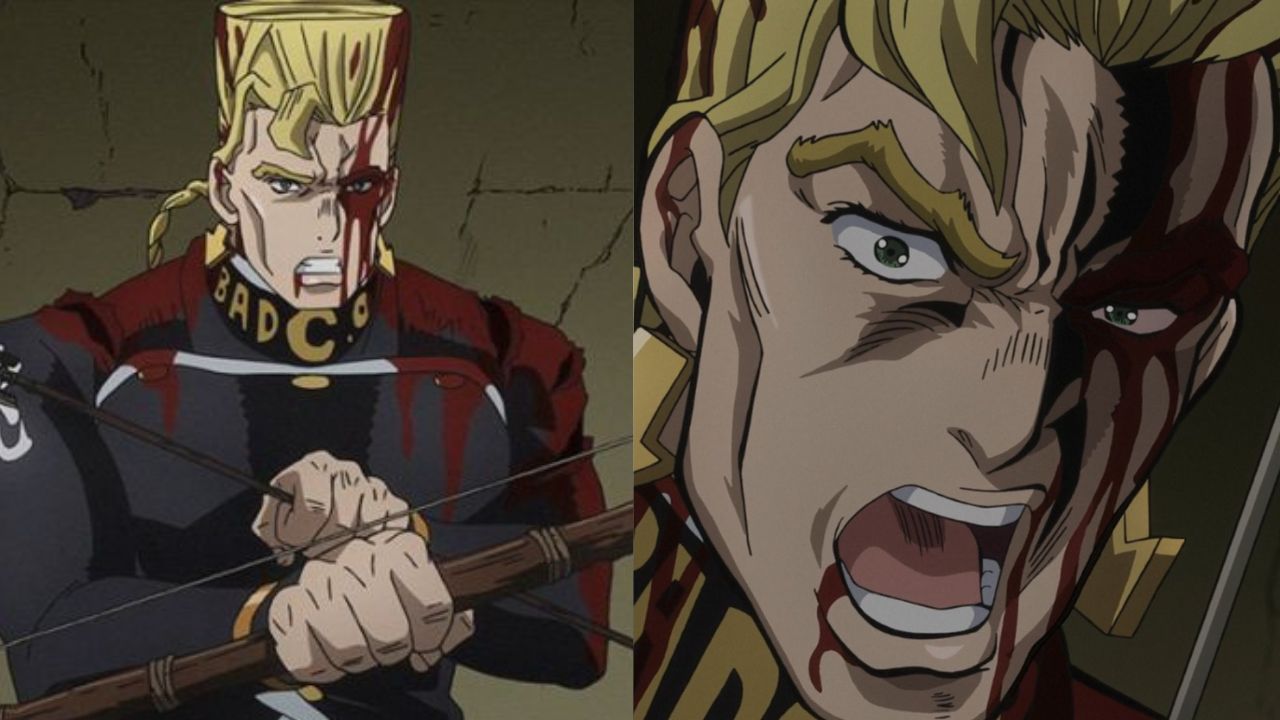
As the story progresses, the protagonist and his friends begin to understand Keiji’s true character. They start to see that his earlier actions, while aggressive and sometimes dangerous, were part of a deeper struggle.
He is a person who is caught between conflicting desires, trying to balance his loyalty to his family with his understanding of right and wrong.
This realization shifts the way others perceive him, as they begin to recognize the complexities of his personality.
In the end, Keiji’s character arc is one of redemption and self-realization. Although he initially seems to be a force to be reckoned with, his true intentions and emotions show that he is not simply a villain.
His journey is a reminder that even the most intimidating characters can have hidden layers, and understanding their struggles can lead to unexpected alliances and personal growth.
11) Saber’s Search for Self in Fate/stay night in Fate/stay night
In Fate/stay night, Saber, also known as Artoria Pendragon, is a character who blends strength and nobility with a deep sense of responsibility.
As the legendary King Arthur, she is one of the most powerful and respected Servants in the Holy Grail War.
Saber’s appearance and demeanor can make her seem distant or even cold, as she carries herself with the grace and duty of a king. However, there is much more to her character than her stoic exterior.
Saber’s primary motivation is her strong sense of duty and honor. She strives to fulfill her role as a leader and protector, believing that her destiny was to serve her kingdom, even at the cost of her own happiness.
This sense of duty weighs heavily on her, as she often questions the choices she made in her past life, particularly her decision to pull the sword from the stone and take the throne.
She feels burdened by the consequences of those choices, especially as she never truly experienced a life of peace or personal fulfillment.
Despite her regal and serious nature, Saber is not without vulnerability. Her strict sense of honor often leads her to misunderstandings with others, especially when it comes to her relationship with Shirou Emiya, the protagonist of Fate/stay night.
She is fiercely protective of Shirou, and while she cares for him deeply, her feelings are often restrained by her internal conflict.
She feels unworthy of any personal happiness and often prioritizes her duties over her own desires.
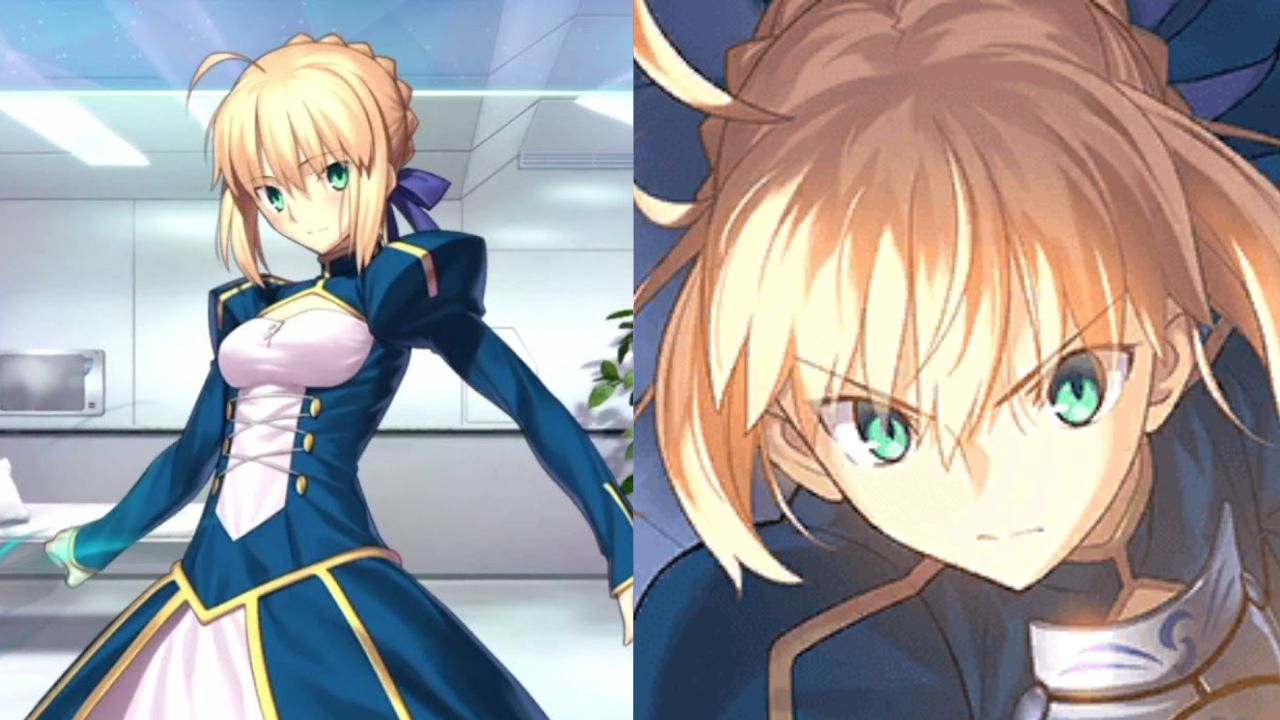
As the story progresses, Saber’s inner conflict becomes more evident. She faces numerous challenges that force her to confront her past mistakes and the emotional walls she has built around herself.
Though she initially seems unreachable, her vulnerabilities begin to show through, revealing her desire for a connection and understanding that goes beyond her role as a servant.
This aspect of Saber is particularly poignant, as it contrasts with her outward persona as a perfect and unflappable warrior.
Saber’s interactions with her allies and enemies alike reflect the complexity of her character.
While her battle prowess and dedication make her a fierce opponent, her moments of vulnerability and introspection show a much softer side.
She is not just a legendary hero, but a person struggling with the weight of expectations and the desire for something more.
Her journey is not just one of physical combat, but of emotional growth and self-acceptance.
By the end of Fate/stay night, Saber’s true self is revealed in a way that allows her to reconcile her feelings of guilt and duty.
She learns that her worth is not tied to the burdens of her past or the expectations placed on her.
Through her interactions with Shirou and the other characters, Saber finds a sense of peace and understanding, finally accepting that she is more than just a king or a servant.
Her story is a powerful example of growth, showing that even the most legendary figures can have their own struggles with identity and belonging.
12) Hirotaka’s Misunderstood Complexity in Wotakoi
In Wotakoi, the main characters are all passionate about pop culture, but each of them handles their geeky hobbies differently.
Narumi Momose, for example, hides her love for otaku culture because she has been hurt by the way others perceive it.
In contrast, Hirotaka Nifuji is open about his gaming obsession, though he’s misunderstood by many because of his calm and distant attitude, which makes him appear indifferent.
While Narumi and the others try to keep their hobbies a secret, Hirotaka doesn’t shy away from his love of video games.
However, it’s not his hobby that causes misunderstandings but his cold and seemingly emotionless personality.
People think he doesn’t care about anything, when, in reality, he is deeply invested in his relationships with his friends and his girlfriend.
Narumi and her friends, on the other hand, struggle with hiding their true interests while maintaining a more conventional and popular appearance at work.
They are regular office workers who fear being judged for their nerdy hobbies, so they keep them hidden.
This contrast between their secret lives and outward personas creates a complex dynamic within their friendships.
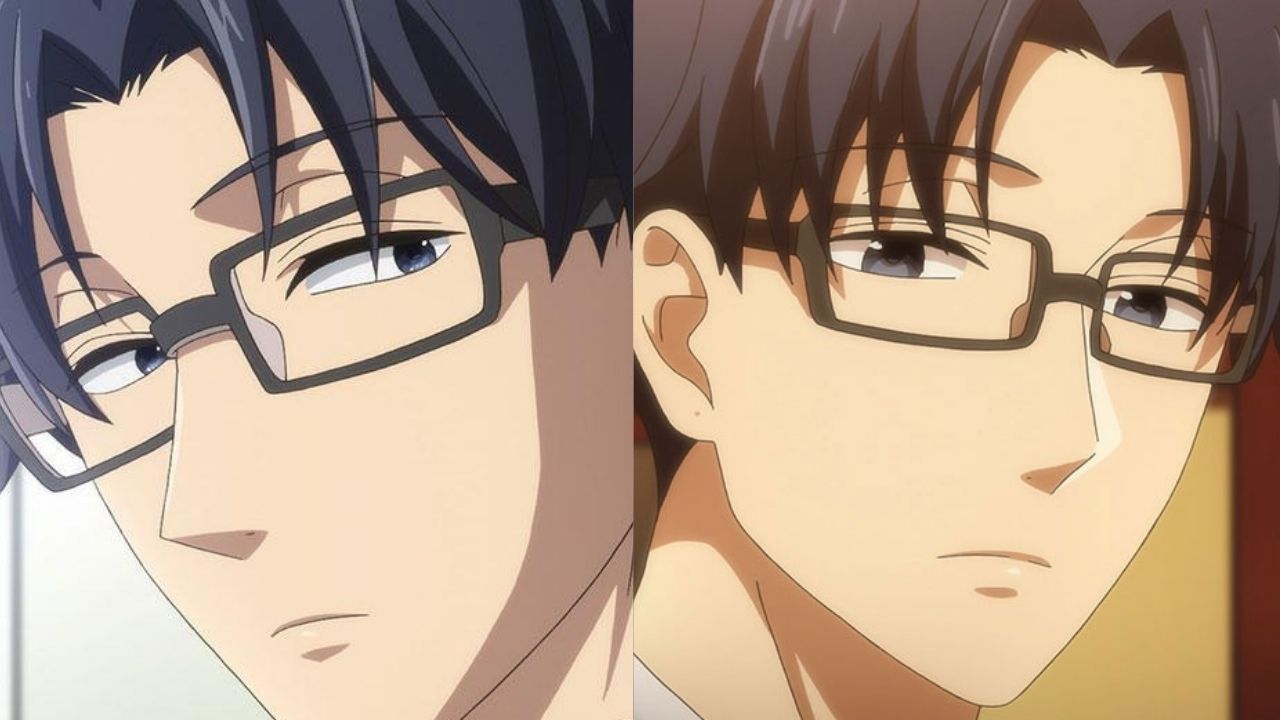
Hirotaka, who is not trying to hide anything, often seems like the odd one out. His love for gaming and his straightforward approach to life stand in sharp contrast to his colleagues’ more guarded behavior.
While they try to balance their work life and geeky interests, Hirotaka is upfront about his passion but is often misunderstood due to his quiet nature.
Despite his outward indifference, Hirotaka cares deeply for his friends and is more emotionally involved than people realize.
His relationship with Narumi is particularly important to him, and he values their connection, even though his demeanor often gives the wrong impression.
He is misunderstood as someone who is emotionally detached, when, in truth, he is quite sensitive and caring.
At one point, Hirotaka even questioned whether he had truly grown up. He wondered if his attachment to gaming and his introverted nature made him emotionally stunted, feeling like a child in comparison to Narumi, who he viewed as an adult.
This internal struggle reflects his deeper insecurities, which add another layer to his complex character.
13) Nino Nakano’s Character Evolution in The Quintessential Quintuplets
In The Quintessential Quintuplets, at first, some of the Nakano sisters give off misleading impressions. Miku, for example, appears cold and distant with Futaro, which makes him believe she doesn’t like him.
Nino Nakano comes across as somewhat of a bully, often making snide remarks. However, these perceptions change significantly as the story progresses, especially with Nino.
She’s portrayed as a hotheaded tsundere, but as the series goes on, Nino reveals a much more caring and sensitive side.
Itsuki even points this out, making it clear that beneath her tough exterior, Nino is deeply emotional and cares a lot about her family and Futaro.
Futaro initially sees Nino as a rude and unfriendly person who simply dislikes him. This view is challenged when Nino reacts with unexpected sympathy during a story Futaro tells about losing his first love.
Her tears surprise Futaro, who had never seen this compassionate side of her before.
He realizes that Nino’s brash attitude was a facade, and she actually has a lot of emotional depth. This moment of vulnerability marks the beginning of Nino showing more of her caring and sensitive nature.
Later in the series, Nino’s true personality continues to emerge. For example, she criticizes Ichika for trying to drive a wedge between the sisters by unfairly competing for Futaro’s attention.
This act shows her protective side and how much she values the bond between her sisters.
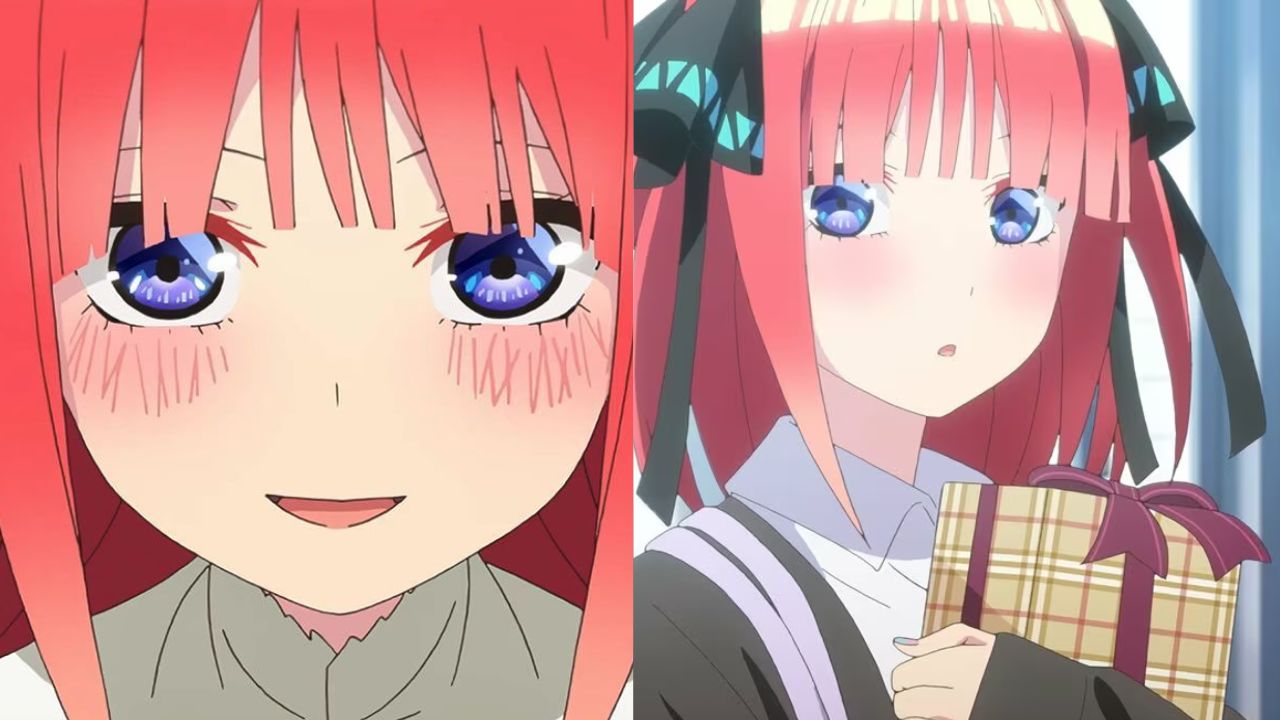
Nino becomes more open about her feelings and starts to express them more openly, moving away from her earlier, more antagonistic behavior.
This change in Nino’s character is not only seen by Futaro but also by the other Nakano sisters, who begin to understand her better.
They see her as someone who is deeply affected by her emotions and who cares about their happiness and well-being.
Her transformation adds a rich layer to her character, making her one of the more complex and interesting sisters in the series.
As Nino’s sensitive side comes out, she starts to regret some of her past actions, and she actively works to improve her relationships with Futaro and her sisters.
This growth makes her a more relatable and sympathetic character, helping viewers see beyond her tough exterior.
By the end of the series, Nino’s character has undergone significant development, and she is seen as a caring and thoughtful person, rather than just a tsundere.
14) Yuki Nagato Redefines Loyalty and Compassion in The Melancholy of Haruhi Suzumiya
In The Melancholy of Haruhi Suzumiya, Yuki Nagato stands out as a mysterious and quiet character within the SOS Brigade. Though her presence often fades into the background, her story and role are anything but ordinary.
At first glance, Yuki appears to be an unremarkable, book-loving high school girl who rarely speaks.
However, her calm exterior hides an incredible truth Yuki is an artificial humanoid interface created by an advanced alien entity. Her mission is to observe Haruhi Suzumiya, whose unpredictable powers could reshape reality itself.
Yuki’s silence and stoic demeanor often make her difficult to approach. Many misunderstand her as cold or emotionless, but she isn’t indifferent; she simply struggles to express herself in typical human ways.
Despite this, Yuki shows she cares deeply about her friends, particularly Kyon, the only one who truly begins to understand her.
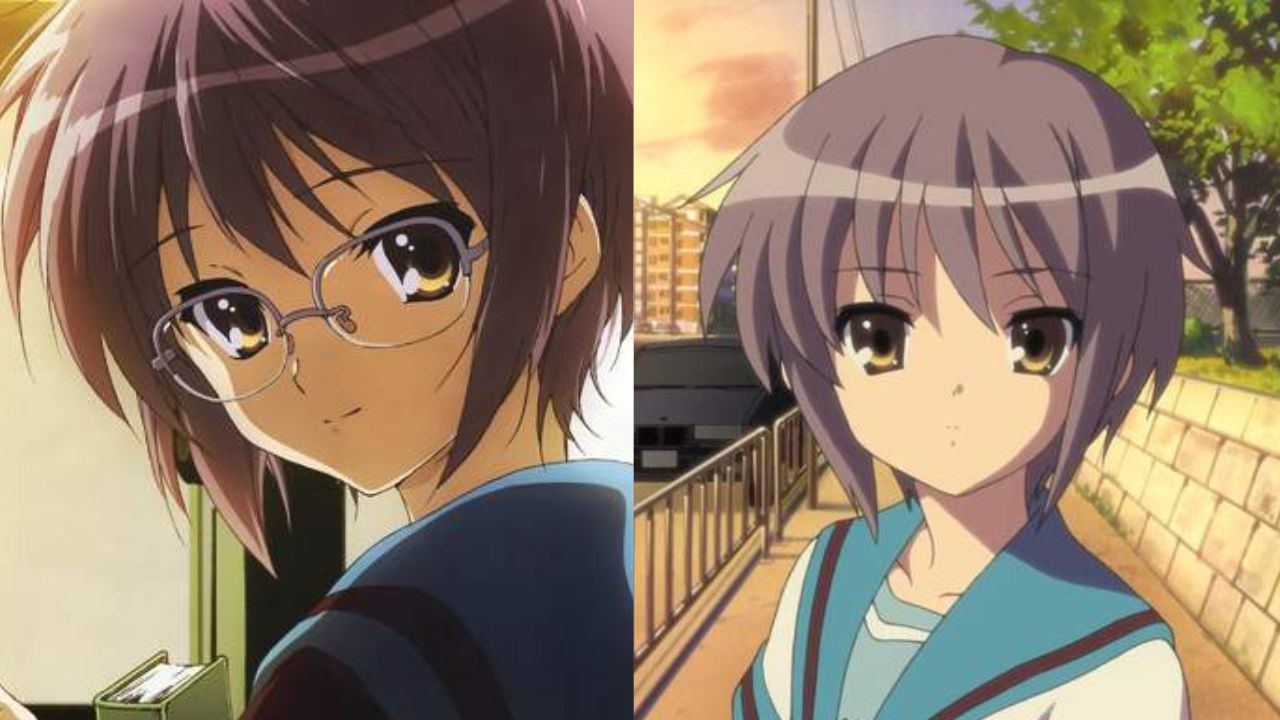
As the series progresses, Yuki’s quiet loyalty and hidden strength shine through. Whether it’s protecting the group from danger or solving problems with her vast knowledge, Yuki proves herself an essential member of the SOS Brigade.
Her actions speak louder than words, gradually earning her the trust and admiration of her friends.
Yuki’s character becomes even more compelling in key moments, like when she makes an unexpected decision to alter reality for the sake of her own happiness.
This act reveals her hidden desires and humanity, showing that she’s more than just a programmed observer.
Ultimately, Yuki Nagato is a deeply misunderstood character whose reserved nature belies her immense power, intelligence, and compassion.
Through her quiet presence and selfless actions, she becomes an irreplaceable part of the SOS Brigade and leaves a lasting impression on those who take the time to understand her.
15) Ai Hoshino’s Struggle with Love and Identity in Oshi no Ko
In Oshi no Ko, the story revolves around misunderstandings, false appearances, and intentional lies, with the Hoshino family at the heart of it all.
The members of this family are not who they seem, and their “eye stars” symbolize the deception they all live with.
Each of them hides the truth about their lives, especially Ai Hoshino, the idol at the center of the story.
Ai presents herself as a perfect and loving idol, adored by her fans who believe she cares deeply for them. She even claims to love them all, which earns her two eye stars.
To the public, Ai is the picture of glamour, friendliness, and warmth, but this version of her is far from the truth.
The real Ai is nothing like the image she projects. Beneath her glamorous exterior, she is a deeply lonely and troubled woman.
She has kept a secret affair and, after giving birth to her children, fears she might not even be capable of loving them properly.
These feelings of inadequacy torment her, and she struggles with the idea of being a good mother.
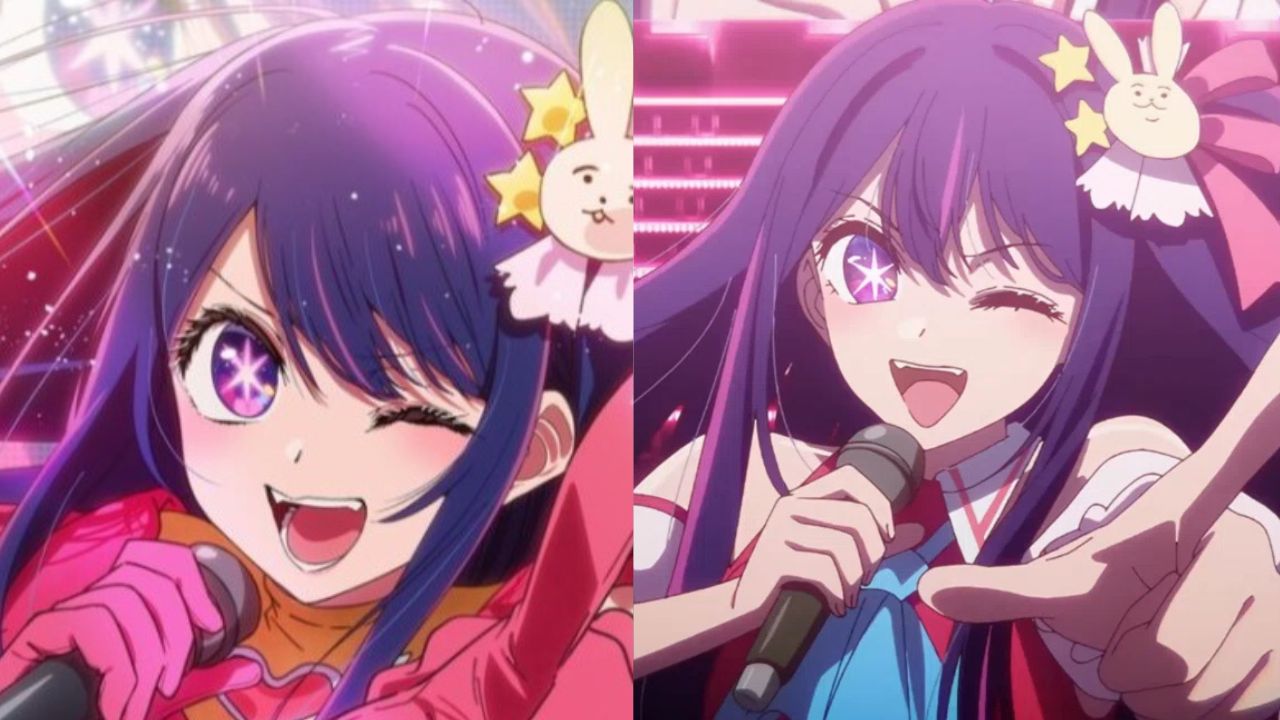
Despite these fears, Ai’s internal struggles are based on misunderstandings of her own emotions. She doubts her ability to care for her son, Aqua, and daughter, Ruby, thinking she might not have the love required to be a good parent.
In reality, though, her love for them is genuine, even if she can’t fully recognize it in her darkest moments.
Ai only realizes her true feelings of love for her children during her final moments. As she dies, she understands that she has always cared deeply for Aqua and Ruby.
This realization brings some peace to her, as she acknowledges the bond she had with them despite the pain and confusion she faced throughout her life.
The series shows how Ai’s life was built on a series of falsehoods, both towards her fans and herself.
In the end, her story is one of misjudgments and personal growth, as she comes to terms with her true feelings and the love she had for her children all along.
Her life, like many of the characters in Oshi no Ko, is a complex web of deception, with moments of clarity shining through at the most unexpected times.
16) Emotional Burden of Yuki Sohma in Fruits Basket
In Fruits Basket, the Sohma family is deeply misunderstood by the outside world, with many unaware of the hardships each family member faces due to their connection to the Chinese zodiac animals.
The burden of carrying these spirits is not only physically painful but also emotionally draining, something that is not obvious to those around them.
Yuki Sohma, the Rat, is a perfect example of this misperception. On the surface, he is seen as the charming, perfect prince who has everything going for him.
He is admired by his peers and respected by his family, but in reality, Yuki struggles with feelings of inadequacy and pressure to meet everyone’s high expectations.
This created a sense of imposter syndrome within him, as he often felt like he didn’t deserve the praise and admiration he received.
Although Yuki was born with the prestigious spirit of the Rat, he didn’t want to embrace the role of Akito’s favorite or the expectations that came with it.
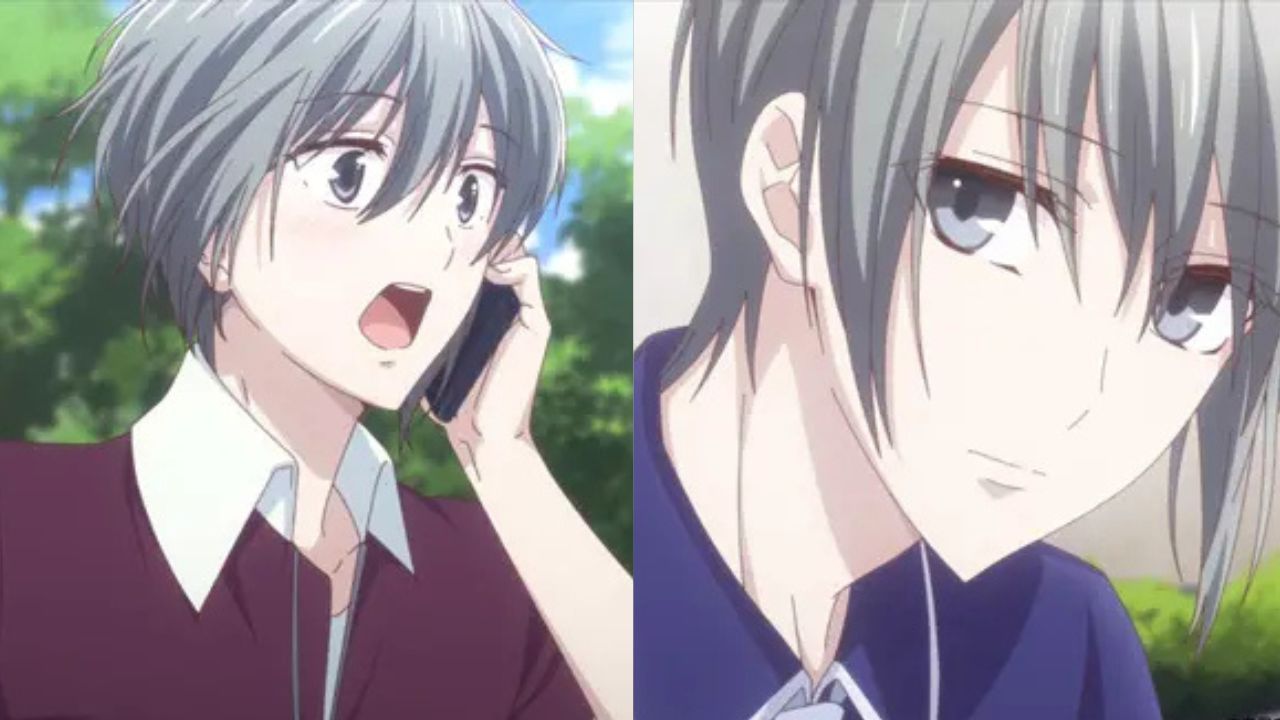
Instead of enjoying his special position, Yuki longed for a normal life, like any other teenager. He dreamed of having a typical high school experience, free from the weight of the Sohma family curse.
This desire for normalcy became more tangible when Yuki met Tohru Honda, a kind and understanding girl who slowly helped him realize that he could pursue his dream of a simple life.
Tohru’s gentle nature and her ability to see beyond the facade of perfection gave Yuki the courage to hope for something different.
With Tohru’s influence, Yuki began to question the expectations placed on him and whether he needed to live up to them.
She encouraged him to be true to himself and showed him that it was okay to be vulnerable.
This emotional support helped Yuki slowly overcome the feelings of isolation and self-doubt he had carried for so long.
As the story progresses, Yuki begins to find a balance between his responsibilities and his desires. His journey is one of self-discovery, learning to accept both his past and the person he wants to become.
Tohru’s friendship plays a pivotal role in helping him achieve the peace and happiness he had longed for, allowing Yuki to take steps toward living the life he had always dreamed of.
17) The Power of Love and Friendship in Inuyasha
In Inuyasha, the main character, Inuyasha, starts off as a seemingly ruthless and hot-headed half-demon.
With his long silver hair, sharp claws, and fierce attitude, he’s known for his quick temper and frequent outbursts, which make him seem intimidating to others.
He initially appears to be a wild, selfish character who only cares about his own goals and desires, particularly his quest to reclaim the Shikon Jewel and become a full demon.
However, as the story progresses, viewers begin to see that Inuyasha’s tough exterior hides a much more vulnerable side.
His rough demeanor is largely a defense mechanism, shaped by a difficult past filled with rejection and pain.
Being a half-demon, Inuyasha was often looked down upon by both humans and demons, which made him distrustful of others.
This background led him to struggle with feelings of loneliness, and he built walls around himself to avoid getting hurt by people’s judgments.
Inuyasha’s relationship with Kagome Higurashi, the main heroine of the series, plays a big role in revealing his true nature.
At first, Inuyasha treats Kagome with frustration and sarcasm, but over time, he starts to develop deep feelings for her.
Though he still struggles with his pride and insecurities, especially when it comes to his demon heritage, his affection for Kagome shows a softer, more caring side of him.
He becomes protective of her, and the bond they share helps him open up to others in a way he never had before.
Despite his growing connection with Kagome and the other members of their group, Inuyasha still faces moments of doubt about his worth.
His inner conflict between his human and demon sides causes him to question his identity, and he often struggles to reconcile the two parts of himself.
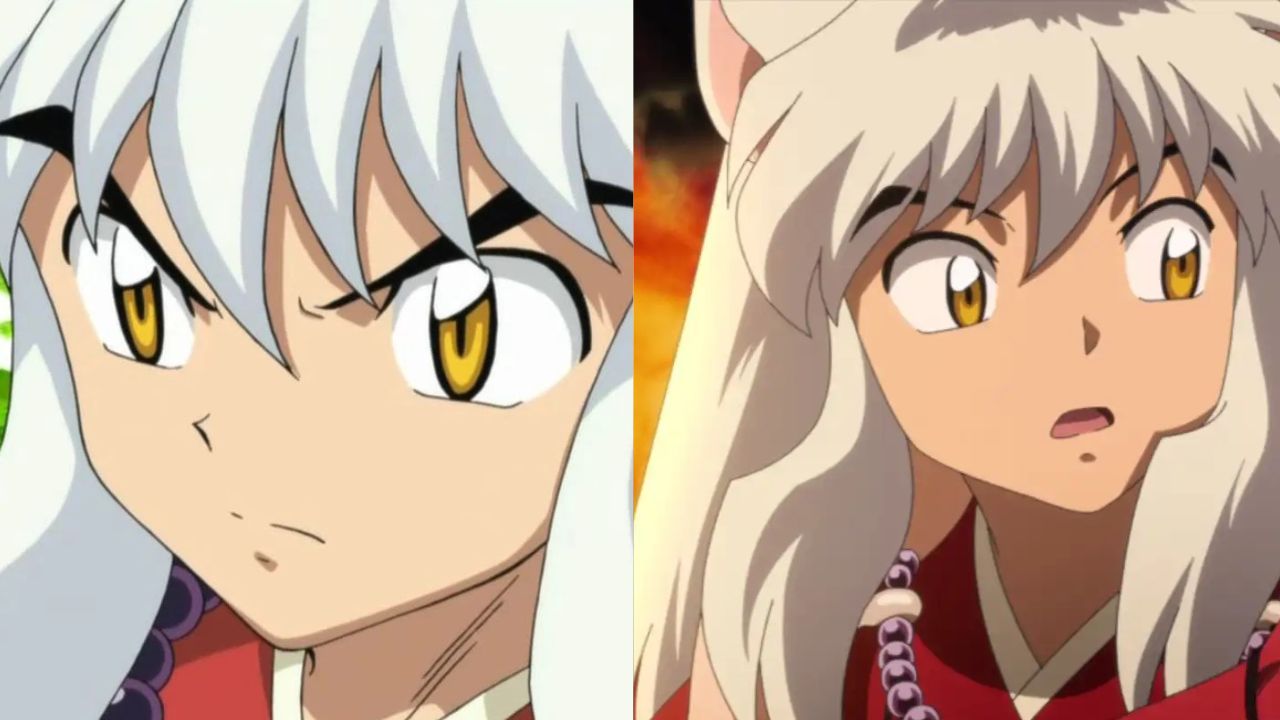
His journey is not just about fighting demons but also about learning to accept who he is, flaws and all, and understanding that he doesn’t need to be anyone else to be loved and respected.
Though Inuyasha may not always express his feelings openly, his actions reveal his deep loyalty to his friends and his sense of justice.
Over time, his selflessness becomes more apparent, especially in his willingness to fight alongside his companions to protect others.
He starts to recognize the importance of teamwork and friendship, even if it’s not something he initially knew how to handle.
His bond with his group, especially with Kagome, becomes central to his growth as a person.
By the end of the series, Inuyasha’s character has undergone significant development. He is no longer the angry, misunderstood half-demon who pushed others away.
Instead, he has embraced the value of love and companionship, becoming someone who fights not just for himself, but for the people he cares about.
Inuyasha’s journey is a witness to the power of understanding oneself and the importance of the bonds we form with others, no matter how tough we may seem on the outside.
18) The Lazy Hero with a Heart of Steel in Gintama
In Gintama, Gintoki Sakata is the protagonist who seems like an indifferent, lazy, and somewhat childish character. He runs a small business called Yorozuya, where he helps people with odd jobs for a fee.
Gintoki has a reputation for being a carefree slacker, often seen lounging around, eating sweets, and avoiding any work that seems too difficult.
His relaxed attitude gives the impression that he’s uninterested in anything serious, especially in a world filled with aliens, warriors, and other chaotic events.
Despite this carefree exterior, Gintoki is far more complex than people first realize. Beneath his playful attitude, Gintoki carries the weight of his past, having lived through the traumatic wars that changed his life and the world around him.
His history is full of pain, loss, and regret, which he hides behind his often humorous and lazy demeanor.
He may joke around, but those who take the time to get to know him can see that he’s deeply affected by his past experiences.
Gintoki’s love for sweets and his laid-back nature often make him seem like a big kid, but he’s also extremely loyal to his friends and willing to put himself at great risk to protect them.
This soft side is shown through his actions, especially when it comes to his friends, such as Shinpachi and Kagura, who are part of his ragtag group in the Yorozuya.
He might not always show it, but Gintoki deeply values the bonds he forms with others, even if he sometimes pretends not to care.
Though Gintoki can be tough and even ruthless when the situation calls for it, he struggles with the expectations placed on him by others.
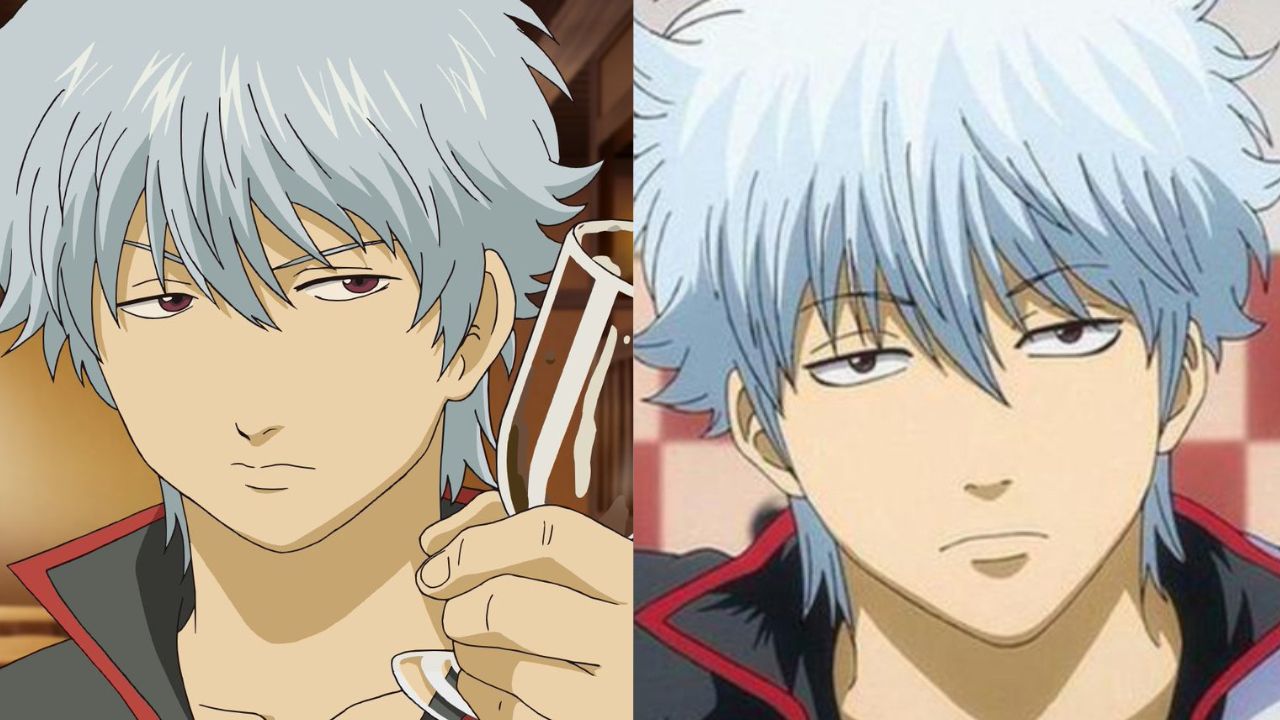
He has trouble accepting the role of a hero or leader, as he doesn’t feel he fits that mold.
His sense of self-worth is often questioned, and he grapples with the idea of being someone’s savior while feeling that he has nothing of value to offer.
This inner conflict adds depth to his character, as he handles the tension between his desire to be free from responsibility and the reality that others look to him for guidance.
Gintoki’s character is built on contrasts: he’s both a carefree slacker and a fierce protector, a comedic figure and a serious fighter.
His journey is one of personal growth, where he learns to accept his responsibilities, embrace his past, and care for those around him.
He may appear to be a lazy swordsman who avoids conflict, but when it comes to his friends and the people he cares about, he’s willing to fight and even die for them.
By the end of Gintama, Gintoki’s character arc highlights the importance of friendship, responsibility, and finding purpose despite the hardships of life.
His willingness to protect those who matter to him and his ability to remain grounded even in the most absurd situations make him a beloved character.
Gintoki Sakata proves that even the most seemingly carefree individuals carry deep emotions and have the capacity for incredible loyalty and strength, making him one of the most memorable characters in anime.
19) The Dual Nature of Higurashi’s Rena in Higurashi When They Cry
In Higurashi When They Cry, Rena Ryuuguu is a key character whose cheerful and sweet personality hides a much darker side.
She starts off as a lovable girl with an obsession for cute things, often seen carrying home random, adorable objects she finds.
However, as the story unfolds, it becomes clear there’s much more to her than meets the eye.
Rena has a gentle nature and cares deeply for her friends in the rural town of Hinamizawa. Despite her love for fun and games, Rena is deeply haunted by a traumatic past.
Her struggles with her family’s breakup and her return to the quiet village weigh heavily on her mind.
This emotional burden leads to moments of paranoia and instability, making her misunderstood by those who don’t truly know her.
Rena’s seemingly innocent fascination with cute things is a way to cope with her pain. She tries to find joy in small things to distract herself from the harsh realities of her life.
However, this cheerful facade often breaks, especially when the events in Hinamizawa take a sinister turn.
Her vulnerability is masked by her friendly demeanor, making it hard for others to see the emotional scars she carries.
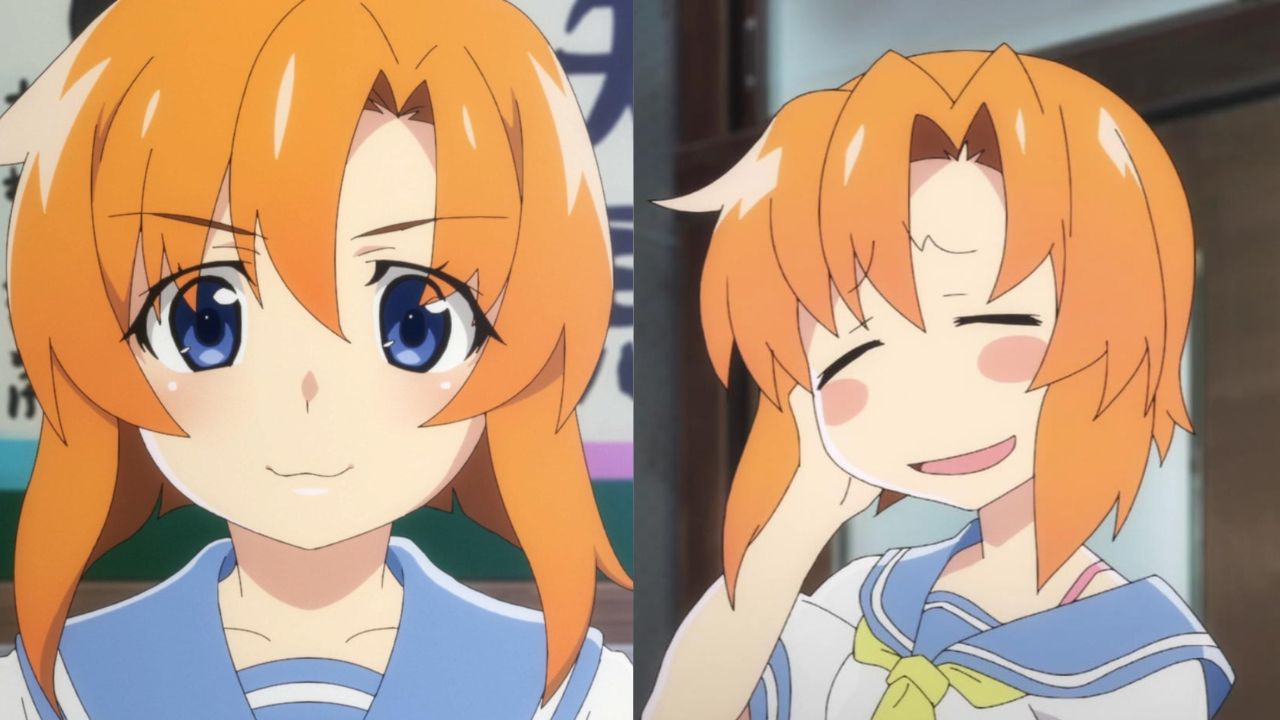
At times, Rena’s darker side takes over, and she becomes frighteningly intense. This transformation shocks those around her, who struggle to reconcile the bubbly girl they know with the dangerous person she can become.
These moments of violence and fear are fueled by her distrust and the pressure of her unresolved traumas.
Even so, Rena’s friends come to understand her better over time. They realize that her extreme reactions are a result of her fear of losing the people she loves and her desire to protect them at all costs.
With their support, Rena starts to open up about her struggles and learns to trust them more deeply.
Rena’s journey is one of facing inner demons and finding strength in her bonds with others.
While she might be misunderstood at first, her depth and complexity make her an unforgettable character, and her moments of vulnerability highlight the power of compassion and friendship in overcoming life’s challenges.
20) Persona 4’s Kanji Tatsumi Redefines What It Means to Be a Delinquent
Persona 4: The Animation brings the beloved Atlus game to life, following a group of teenagers solving a thrilling murder mystery.
The story unfolds as people mysteriously disappear into televisions, and the team unite to uncover the truth and rescue those in danger.
Among the group is Kanji Tatsumi, a tough-looking punk with a reputation for being a troublemaker. Known for his fights and rough attitude, Kanji is initially seen as intimidating and unapproachable by others.
His tough exterior keeps people at a distance, reinforcing his image as a delinquent.
However, Kanji’s personality is more complex than it seems. Beneath his rough exterior lies a kind and sensitive soul. He has a passion for tailoring, a hobby that contrasts sharply with his outward persona.
Kanji also values meaningful friendships, though he is cautious about who he lets into his life.
When the protagonist and his friends encounter Kanji, they are hesitant to trust him because of his fearsome reputation.
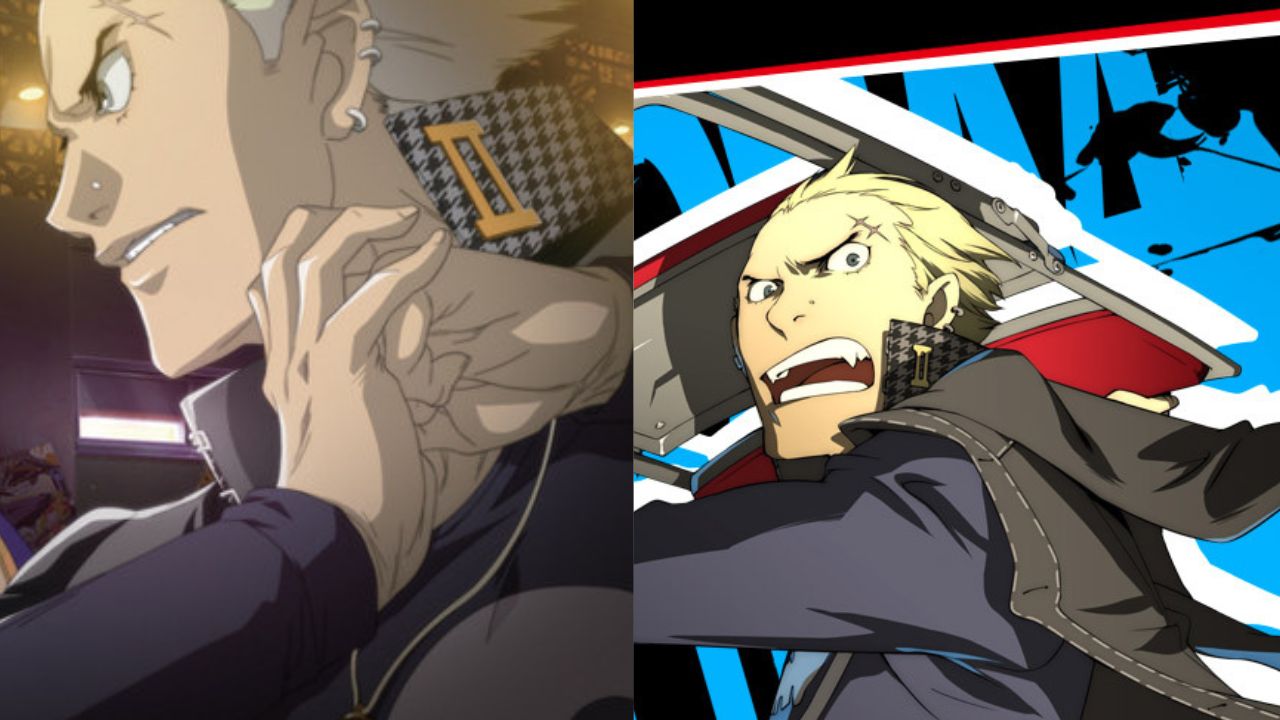
But over time, they begin to see the real Kanji someone loyal, caring, and ready to fight for what’s right. His hidden kindness surprises them and earns their respect.
As Kanji joins their journey into the mysterious TV world, his unique strengths and personality add depth to the team.
He proves himself to be a valuable ally, both in combat and as a friend, strengthening the bonds among the group.
Kanji’s story highlights the importance of looking beyond appearances to truly understand someone.
Through his friendships and adventures, Kanji grows into a more open and confident version of himself, earning his place as a beloved member of the team.
21) Komi Found Her Voice and Overcame Loneliness in Komi Can’t Communicate
In Komi Can’t Communicate, the main character Shoko Komi is often misunderstood by her classmates due to her struggle with communication.
Her quiet nature leads others to think she is a cold and distant person, someone who looks down on everyone around her.
Her classmates view her as an aloof ice queen, someone who seems untouchable and unapproachable.
The truth, however, is far from this perception. Shoko’s silence is not due to arrogance, but because she feels too intimidated and nervous to speak.
She has trouble expressing herself, which makes her feel isolated from others, despite her desire to connect. This inner struggle with communication has left her feeling lonely for a long time.
For years, Shoko had to endure this loneliness, watching others form friendships while she stayed on the outside, unable to break through her own fears and anxieties.
Her classmates’ assumptions about her only deepened her sense of isolation, making it harder for her to reach out.
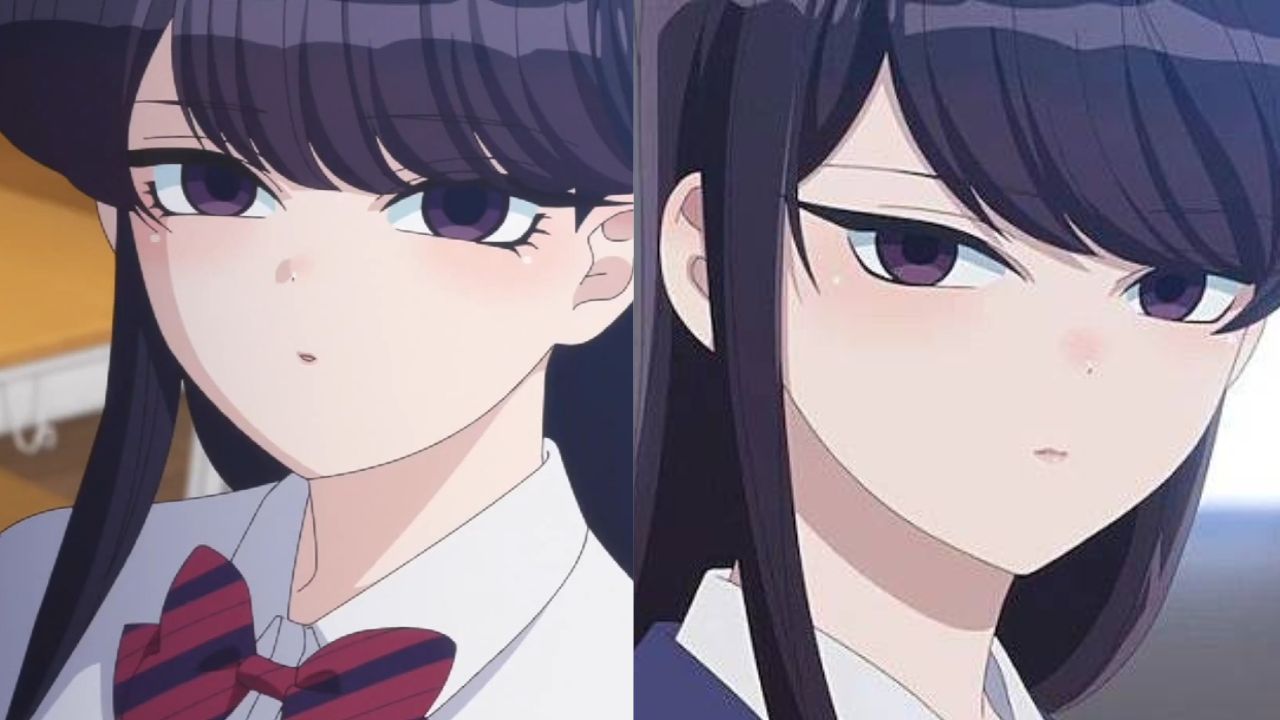
However, everything starts to change when Shoko meets Hitohito Tadano, a classmate who is kind and understanding. Tadano is the first person outside of her family who truly sees Shoko for who she is.
He doesn’t judge her for her silence or misunderstand her motives, and this gives Shoko the courage to start opening up to him.
With Tadano’s support, Shoko begins to break free from her self-imposed shell. Slowly but surely, she starts to interact with her classmates, letting them see the kind, friendly person she really is.
Her ice queen persona begins to fade as she makes small steps toward overcoming her communication barriers.
As Shoko’s social circle grows, so does her confidence. Over time, more people begin to realize that the real Shoko Komi is not the distant figure they once thought her to be, but a shy, sweet girl who simply needed a little help to connect.
Through her journey, she learns that being open and reaching out is the key to overcoming loneliness.
22) Akihiko Usami The Tough Exterior Hiding a Tender Heart in Junjou Romantica
In the anime Junjou Romantica, Akihiko Usami is a character who initially comes off as cold and distant.
He’s known for his serious demeanor, aloof nature, and often intimidating personality, which makes it hard for others to get close to him.
As one of the central characters, Akihiko is a successful, well-established author whose life seems perfect on the outside.
However, his outward appearance hides a much more complex and vulnerable side that few get to see.
Akihiko is often misunderstood by those around him. He has a reputation for being somewhat of a playboy, enjoying casual relationships without much emotional investment.
Yet, his romantic life is far from simple. Beneath his carefree attitude lies a man who struggles with his own fears of attachment and intimacy, largely because of unresolved issues from his past.
This emotional baggage makes it difficult for him to open up to others, even though deep down, he yearns for something more meaningful.
One of the most significant aspects of Akihiko’s character is his relationship with Misaki Takahashi, a young man who unexpectedly becomes a major part of his life.
At first, Akihiko comes off as a mentor to Misaki, but as their bond grows, it becomes clear that Akihiko’s feelings for him are more than just platonic.
Despite his growing love for Misaki, Akihiko struggles to express his emotions and often hides behind his tough, unapproachable exterior. This emotional conflict is a key part of his character arc.
While Akihiko is often seen as the strong, dominant figure in the relationship, he is also a character who seeks comfort in the love and support of those closest to him.
He doesn’t easily trust people, and when he does allow someone to get close, he holds onto them dearly.
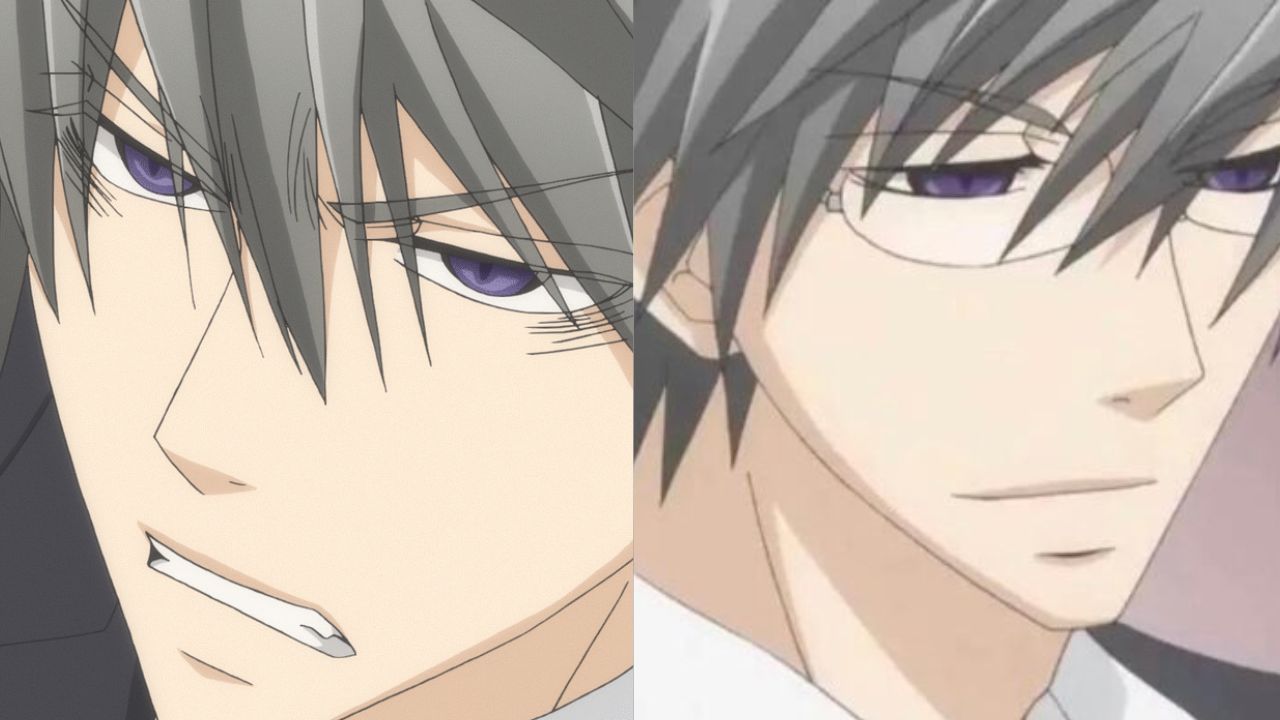
Misaki’s presence in his life helps Akihiko confront his vulnerabilities and begins to soften his guarded personality.
Over time, Akihiko learns to embrace his feelings and become more open, especially when it comes to his relationship with Misaki.
Though Akihiko might seem self-sufficient and even a bit indifferent, he is far from emotionally detached.
His struggle to balance his personal life with his professional success shows just how much he cares, even if he doesn’t always know how to show it.
Akihiko values those who truly understand him, and as the story unfolds, he begins to form deeper connections with people like Misaki, letting them see the real Akihiko, not just the persona he has crafted.
In the end, Akihiko Usami is a character who, despite his reputation and rough exterior, has a tender side that is gradually revealed throughout the series.
His journey is about learning to open up to love, confront his past, and accept that it’s okay to be vulnerable.
Through his relationship with Misaki and the trust he builds with others, Akihiko ultimately finds the strength to be his true self, proving that even the most seemingly tough characters have a soft side waiting to be discovered.
23) Rei’s Path to Understanding Her True Identity in Evangelion
In Neon Genesis Evangelion, Ayanami Rei is initially introduced as a quiet and mysterious character, often seen as distant and emotionless.
As the pilot of the powerful Evangelion Unit 00, she becomes an essential part of the team fighting against the mysterious creatures known as Angels.
Rei’s cold demeanor and lack of personal expression make her seem like an mysterious figure, and her interactions with others are often limited to her role as a soldier.
Her blank stare and minimal speech only add to the perception that she is distant, possibly even robotic.
Despite her detached appearance, Rei’s character is far more complicated than anyone could guess. Her quiet nature hides a deep sense of vulnerability and a lack of personal identity.
Throughout the series, it is revealed that Rei’s existence is tied to something much larger than she understands, involving clones and her connection to the series’ complex mythology.
This makes her struggle with self-worth, as she questions who she is and what her purpose truly is, even if she doesn’t express it outwardly.
Rei’s relationship with Shinji Ikari, the main protagonist, develops gradually as he begins to understand her better. Initially, Rei’s emotional walls make it difficult for Shinji to connect with her.
She often seems aloof, and her reserved nature leaves others unsure about her thoughts and feelings.
However, over time, Shinji starts to see beyond her cold exterior, slowly realizing that Rei, much like him, carries a deep emotional burden.
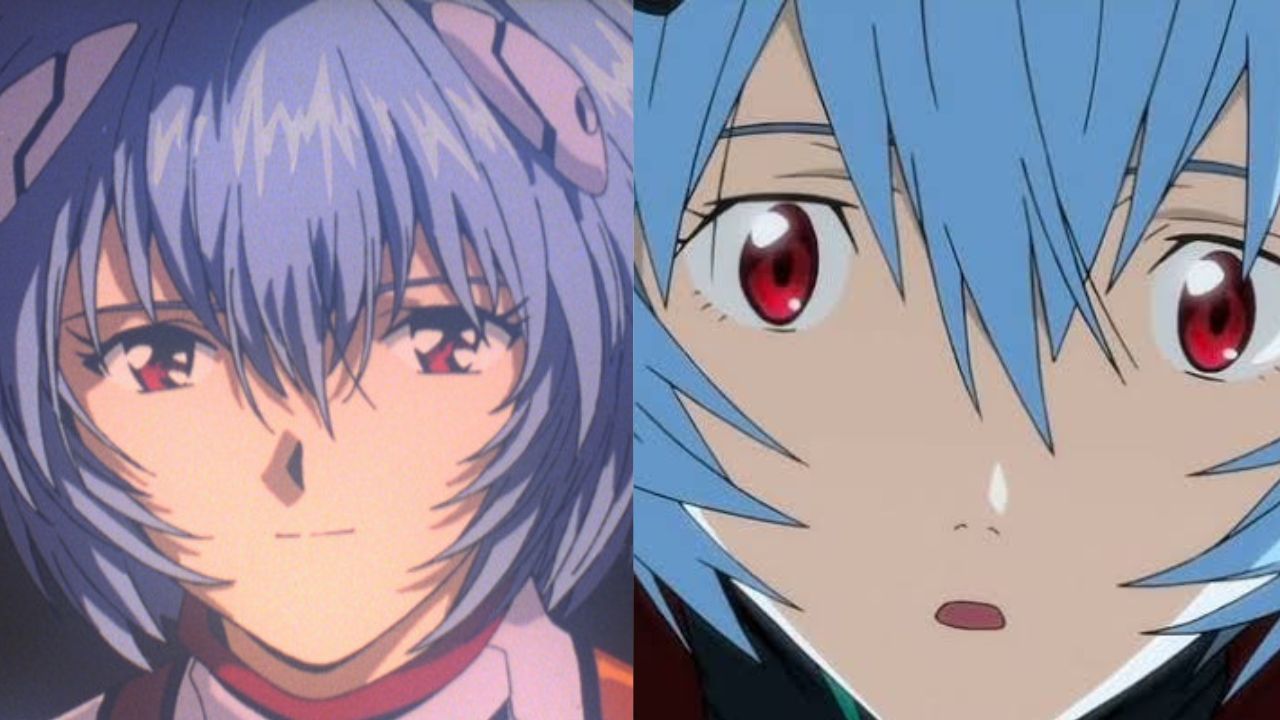
They begin to form a bond, though it is complicated and often marked by misunderstandings.
Her bond with Gendo Ikari, Shinji’s father, is another key element of Rei’s story. Rei is obedient and loyal to Gendo, but it becomes clear that their relationship is built on a foundation of control rather than affection.
This dynamic adds to Rei’s sense of isolation, as she seems to exist mainly to fulfill the wishes of others, especially Gendo, with little to no personal desires.
As the series progresses, Rei begins to question the nature of her relationship with Gendo and whether she truly means anything to him beyond her usefulness.
Despite her stoic personality, Rei exhibits moments of quiet tenderness and strength. She may not show emotions openly, but when the time comes, she is capable of making decisions based on her own will, even if it goes against orders.
These rare moments highlight Rei’s internal conflict and her gradual development as a character who begins to understand her own emotions and desires, even if she struggles to express them.
Rei’s journey throughout Neon Genesis Evangelion is one of self-discovery and growth. She starts off as a character who seems almost entirely defined by her role as a soldier and her obedience to Gendo.
However, by the end of the series, Rei begins to understand the importance of individuality, choice, and personal connection.
Although she remains a quiet and mysterious figure, her story is one of breaking free from the constraints placed upon her and finding her own sense of purpose and humanity.
Her character, once misunderstood and distant, evolves into one of the most poignant figures in the series.
24) Hinagiku Katsura’s Journey of Self-Acceptance in Hayate the Combat Butler
Hinagiku Katsura is a key character in Hayate the Combat Butler, known for her tough and independent persona.
She’s often seen as serious, disciplined, and very responsible, managing both her duties as a student council president and her personal life with a level of maturity beyond her years.
This no-nonsense attitude has earned her a reputation as someone who doesn’t tolerate foolishness, and she often appears intimidating to those around her.
People tend to view her as perfect, someone with no flaws or weaknesses, making it hard for her to connect with others on a deeper level.
However, this strong exterior hides a more vulnerable side that Hinagiku is reluctant to show. Beneath her tough exterior, she harbors insecurities and feelings of loneliness.
She struggles with the expectations placed on her and the weight of being seen as the perfect, unapproachable student.
Despite her ability to take care of others and handle difficult situations, Hinagiku often feels isolated and misunderstood, believing that no one truly knows who she is behind her responsibilities.
Her tough image is also complicated by her caring nature, especially when it comes to her friends and those she loves. She’s always ready to help others, whether it’s her friends or even people she doesn’t know well.
This compassionate side comes through, especially when she’s around her close friends, although she’s reluctant to open up to them about her own struggles.
The more she interacts with others, the more her soft side becomes apparent, especially when it comes to her hidden insecurities and desire for connection.
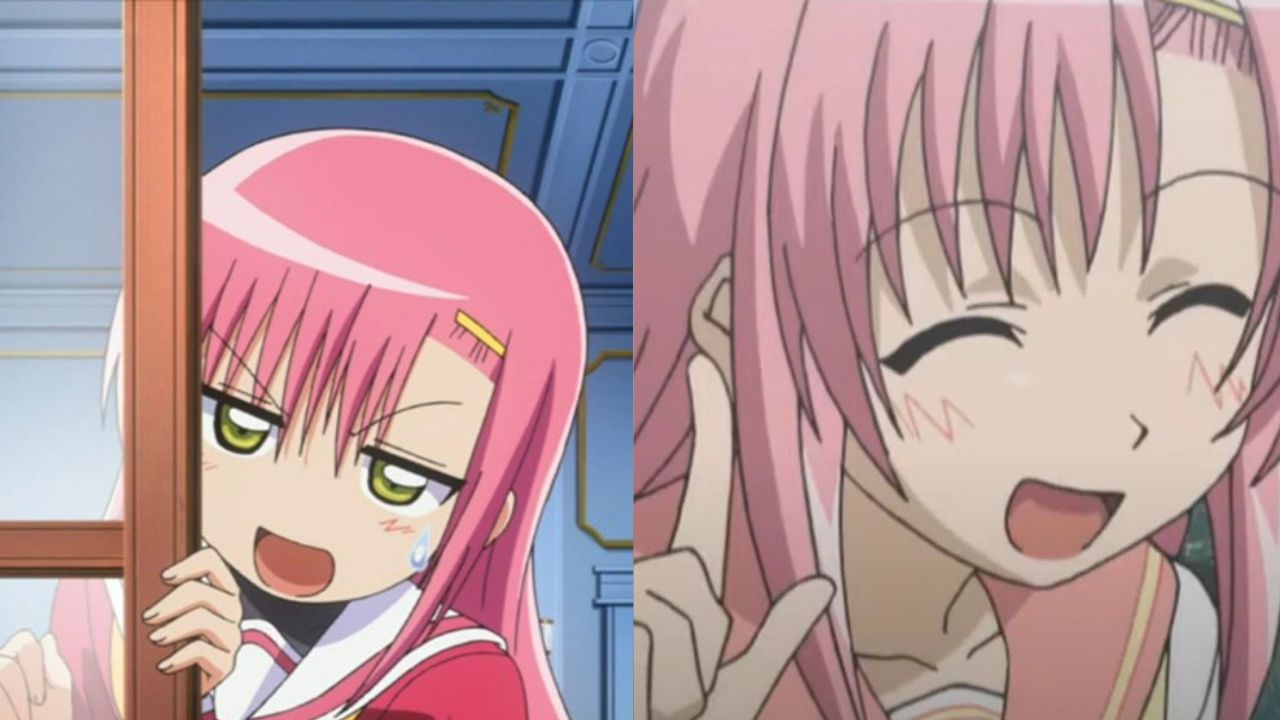
At first, many of the characters in Hayate the Combat Butler view Hinagiku as somewhat aloof, not realizing how much pressure she’s under.
As the story progresses, however, they begin to see the layers beneath her confident demeanor.
She might come off as distant or cold at times, but those who get to know her better realize that she is just someone who has built walls to protect herself from being hurt.
Her relationships with others, particularly with the main character, Hayate, reveal just how much she values genuine friendship and support.
Although she keeps her emotions tightly under control, her actions often speak louder than her words. Her willingness to sacrifice for her friends and her capacity for empathy show that despite her cold appearance, she is deeply caring and capable of deep emotional bonds.
She may not always express it openly, but her affection for those she cares about is undeniable.
Ultimately, Hinagiku’s story is one of personal growth, learning to embrace her vulnerabilities and letting others into her life.
While she may struggle with self-doubt, her journey shows that even the most put-together individuals have moments of weakness and need the support of those around them.
As the series unfolds, Hinagiku becomes a more well-rounded character, gaining the trust of her peers and learning to accept herself for who she truly is.
Through her, viewers see that it’s okay to have imperfections and that true strength comes from embracing both the tough and tender sides of oneself.
25) The Loyalty and Growth of Kuwabara in Yu Yu Hakusho
Kuwabara Kazuma, a key character in Yu Yu Hakusho, starts out as a brash and tough teenager, often seen as a troublemaker.
He’s the kind of guy who doesn’t back down from a fight and is known for his strong sense of pride.
Kuwabara is always ready to defend his friends and stand up for what he believes is right, even if it means putting himself in danger.
His rough exterior and tendency to get into brawls with others earned him a reputation as a bit of a delinquent, and many people didn’t take him seriously at first.
Despite his tough-guy image, Kuwabara has a surprisingly kind heart. He’s fiercely loyal to his friends and shows an unwavering sense of honor, even if his methods are sometimes unconventional.
Kuwabara is always there for his teammates, especially when they face challenges in the dangerous world of Yu Yu Hakusho.
While he may seem like the comic relief at times, there’s more to him than meets the eye.
He cares deeply about his friends and would do anything to protect them, even when the odds are stacked against him.
His strong sense of loyalty is particularly evident in his relationship with Yusuke Urameshi, the protagonist. Kuwabara and Yusuke start off as rivals, often butting heads over their differences.
However, over time, Kuwabara proves that he’s not just a fighter; he’s a true friend. When the team faces dangerous enemies, Kuwabara stands by Yusuke and the others without hesitation, showing his courage and unwavering loyalty.
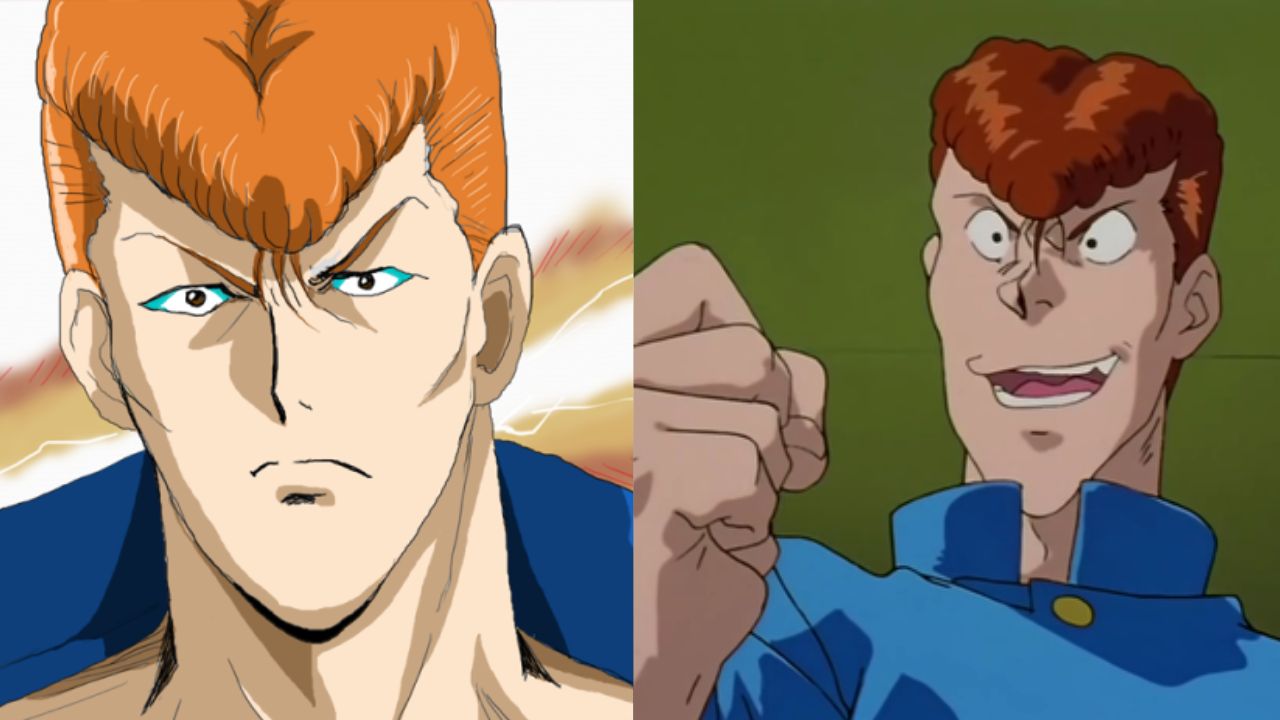
Though he’s not always the most powerful fighter, his heart is what makes him an important part of the team.
Kuwabara’s softer side is often hidden beneath his tough exterior, and he doesn’t show it to just anyone.
He has a deep sense of responsibility for those he cares about, and he will go to great lengths to protect them, even if it means putting himself in harm’s way.
Kuwabara’s sense of honor often drives him to take on challenges that others would shy away from, and he does so with determination and a desire to make things right.
He may not always be the smartest or the strongest, but his heart and courage set him apart.
One of Kuwabara’s defining characteristics is his connection to the spiritual world. Unlike some of the other characters in Yu Yu Hakusho, Kuwabara has an innate spiritual awareness that allows him to sense energy and spirit energy in others.
This unique ability makes him an important asset to the team as they fight against powerful spiritual forces.
Despite his initial lack of understanding about his powers, Kuwabara’s growth throughout the series is a witness to his determination and willingness to learn.
By the end of Yu Yu Hakusho, Kuwabara’s character has fully evolved from the tough, often misunderstood delinquent into a true hero.
He’s no longer just the comic relief or the easy target; Kuwabara proves himself to be a brave and reliable ally.
His journey from a young man driven by pride and ego to someone who understands the importance of friendship, loyalty, and honor is one of the most heartwarming aspects of the series.
Kuwabara may have started as a fighter, but he ended up being one of the strongest in spirit.





